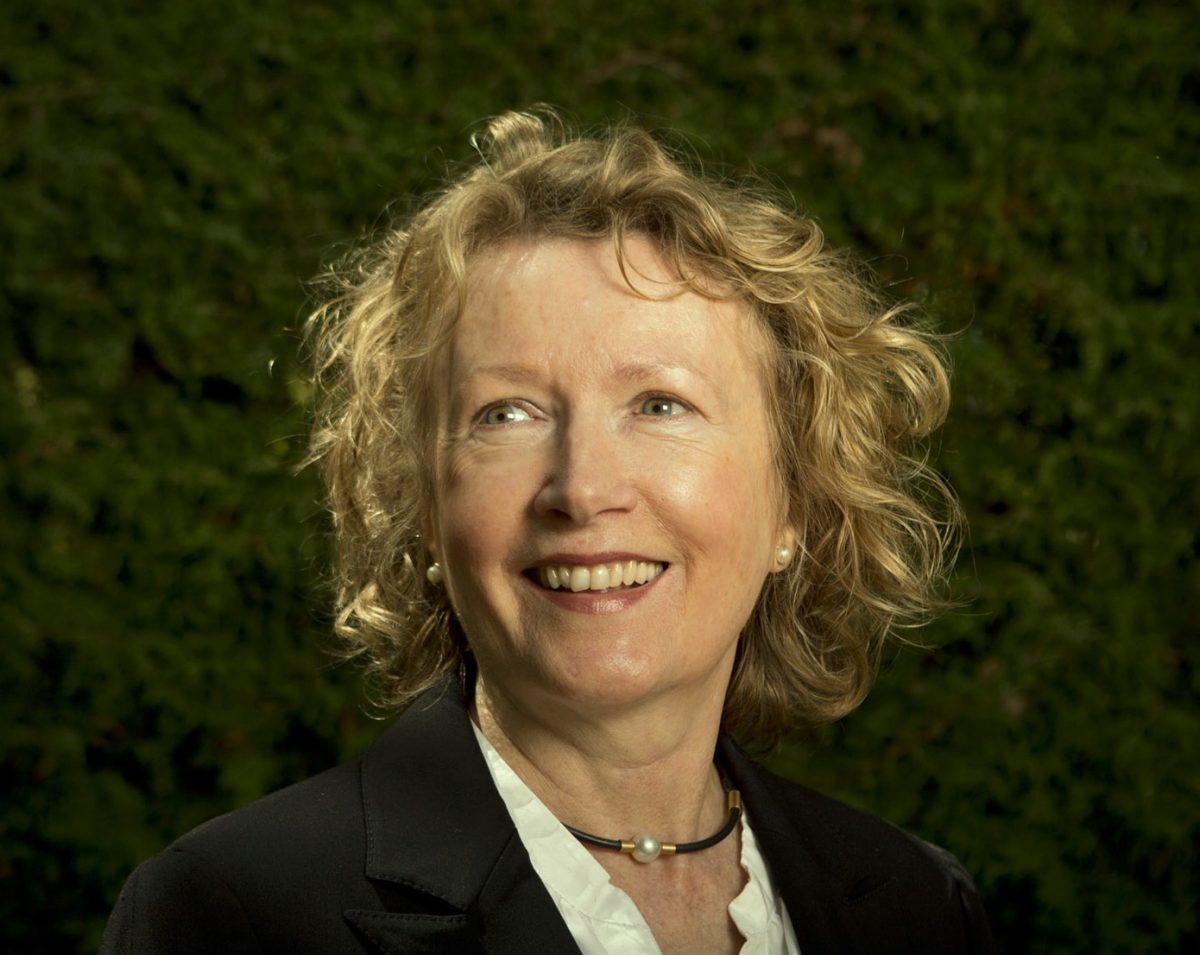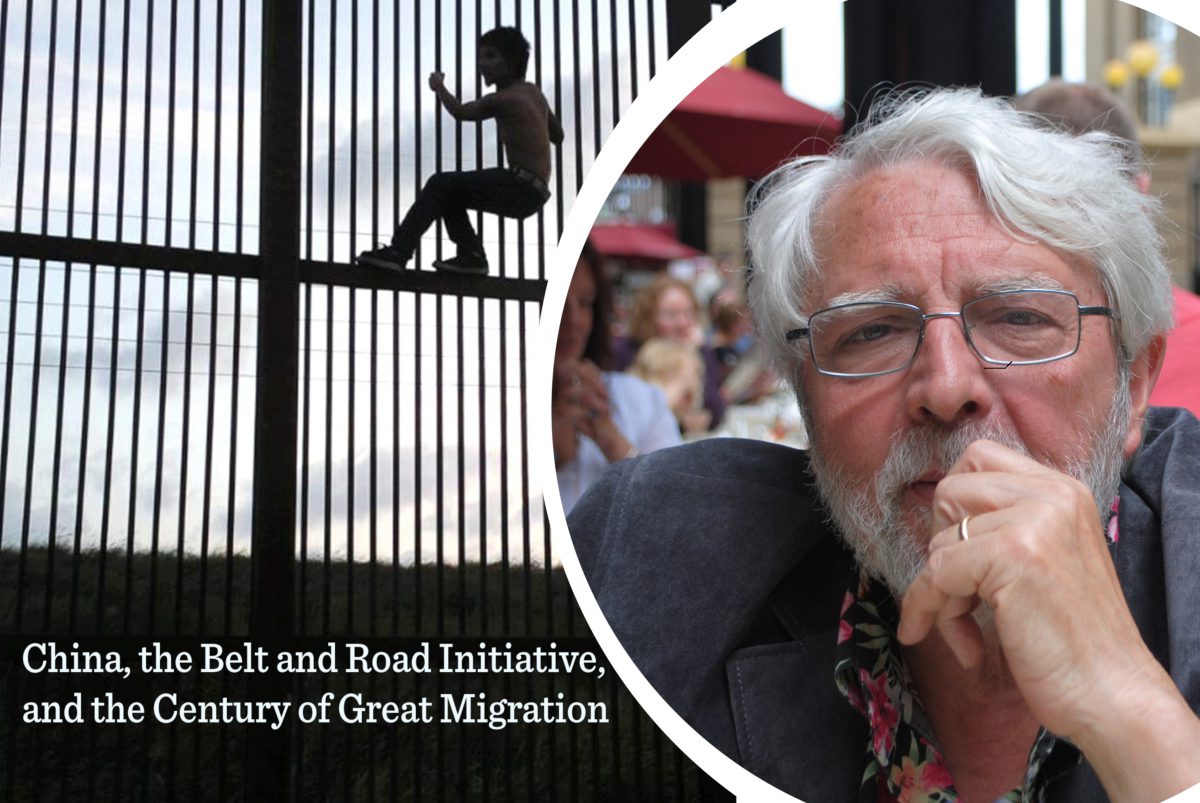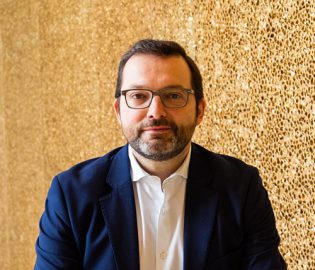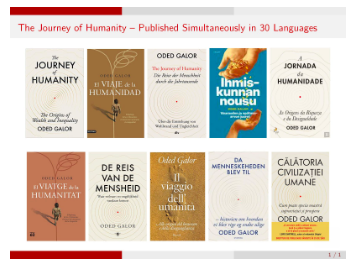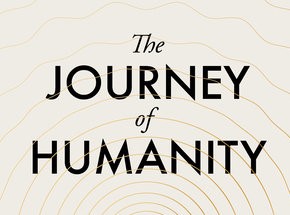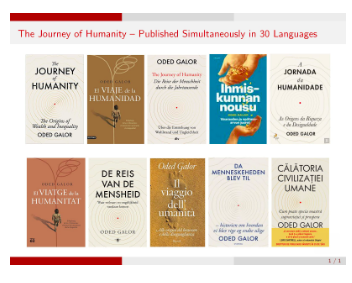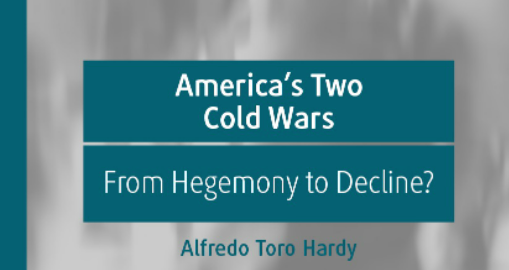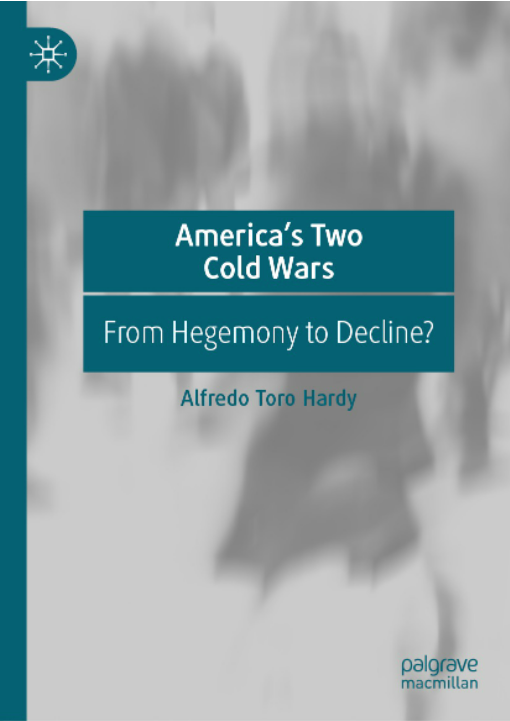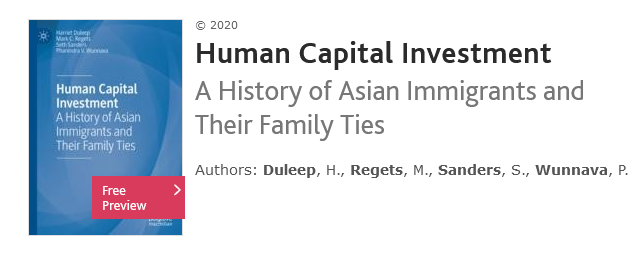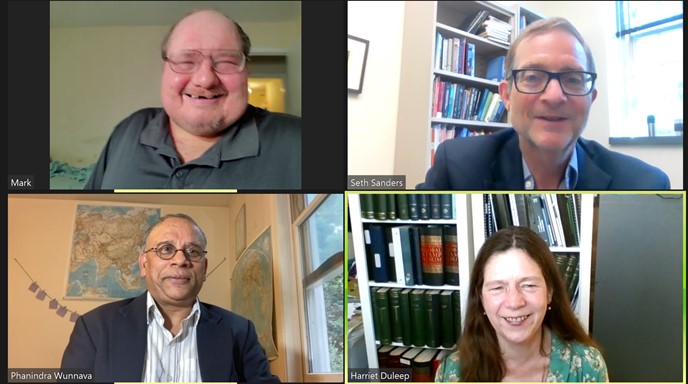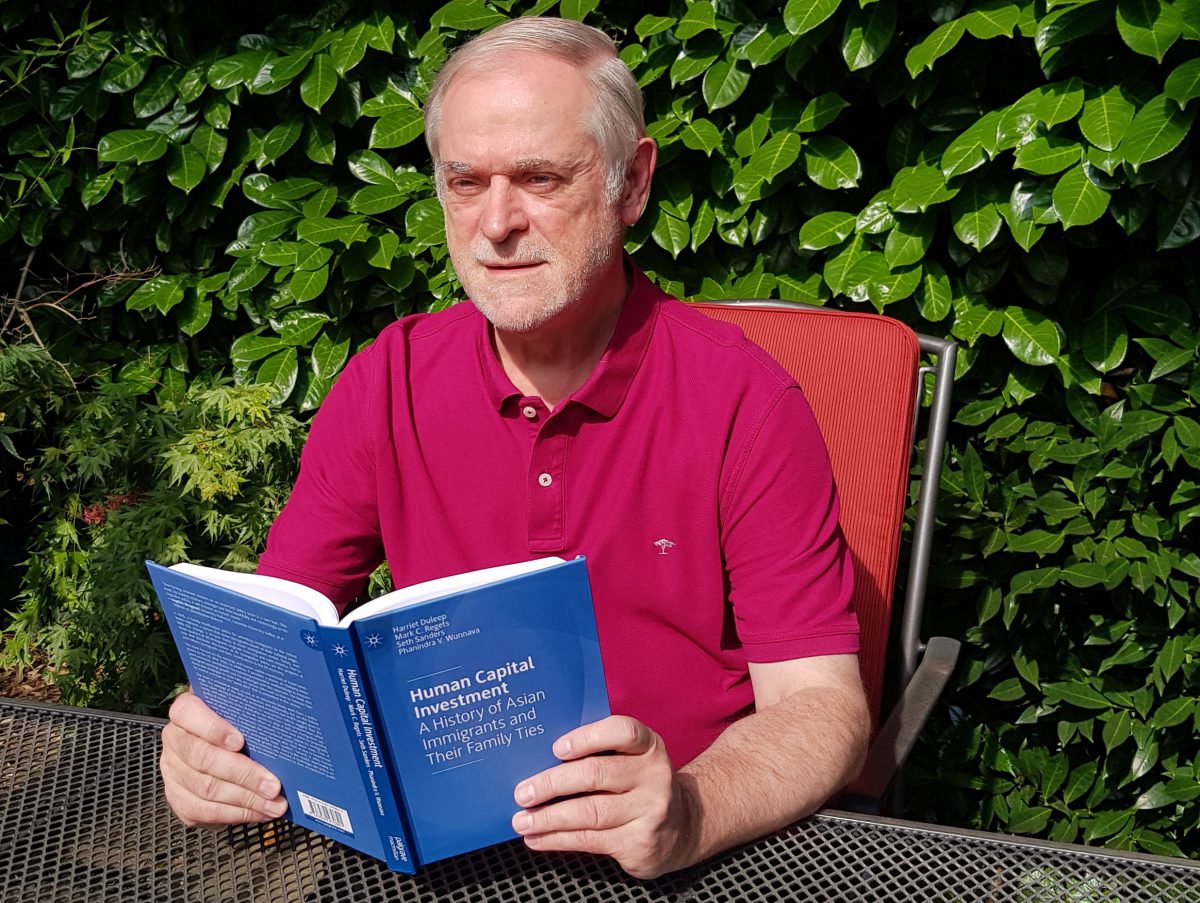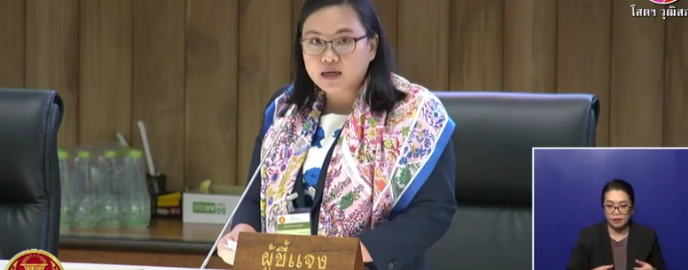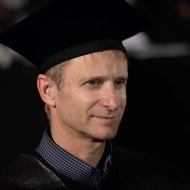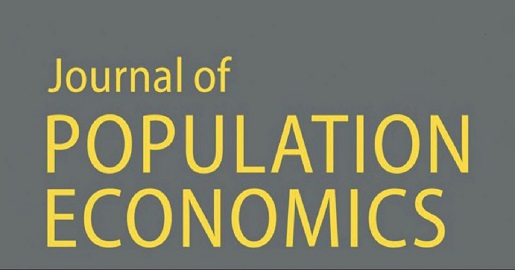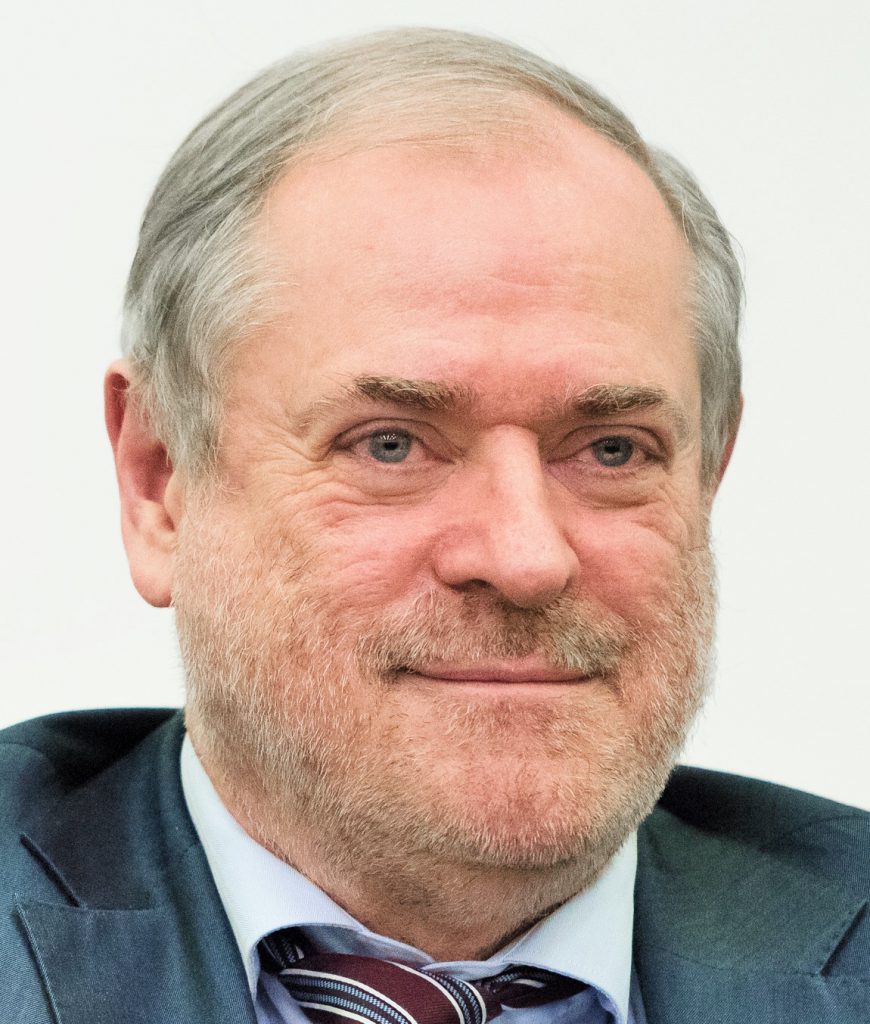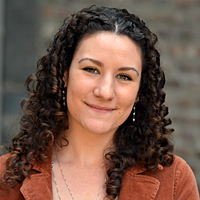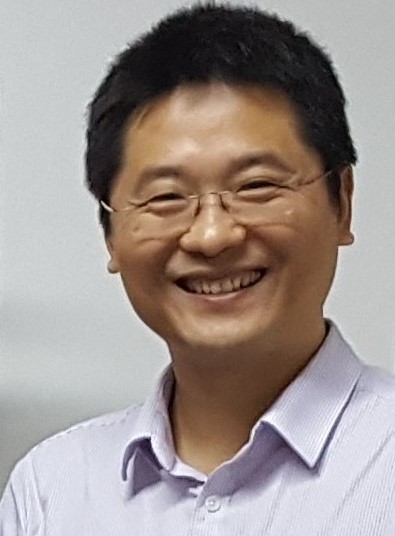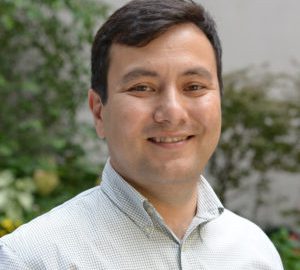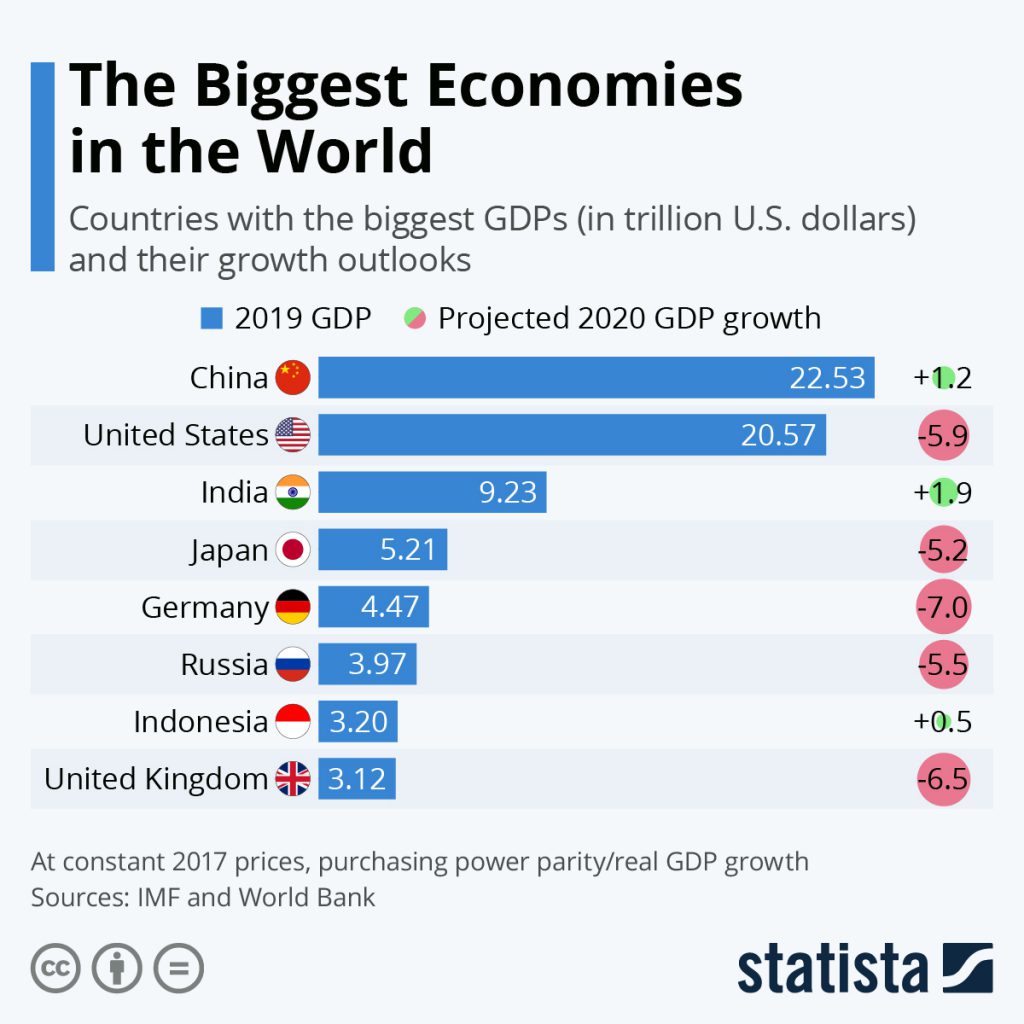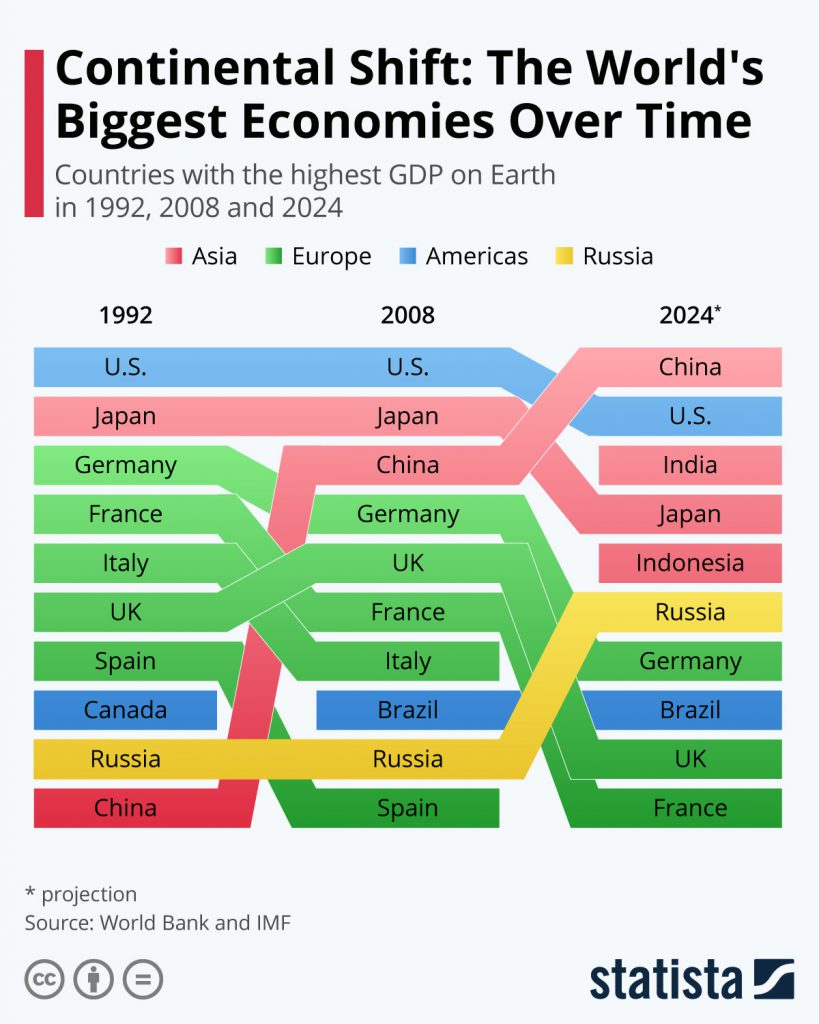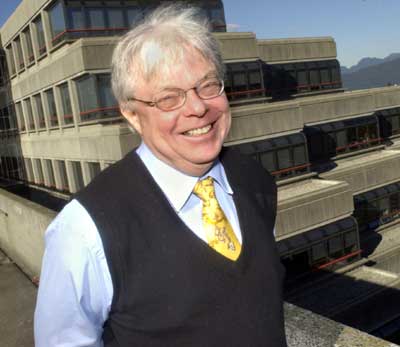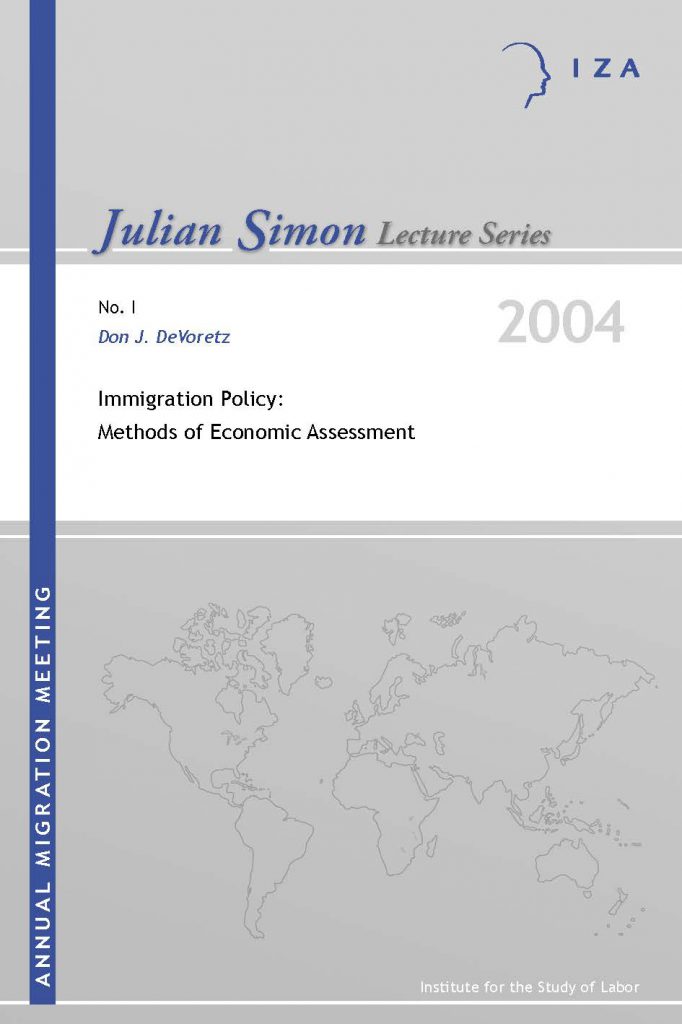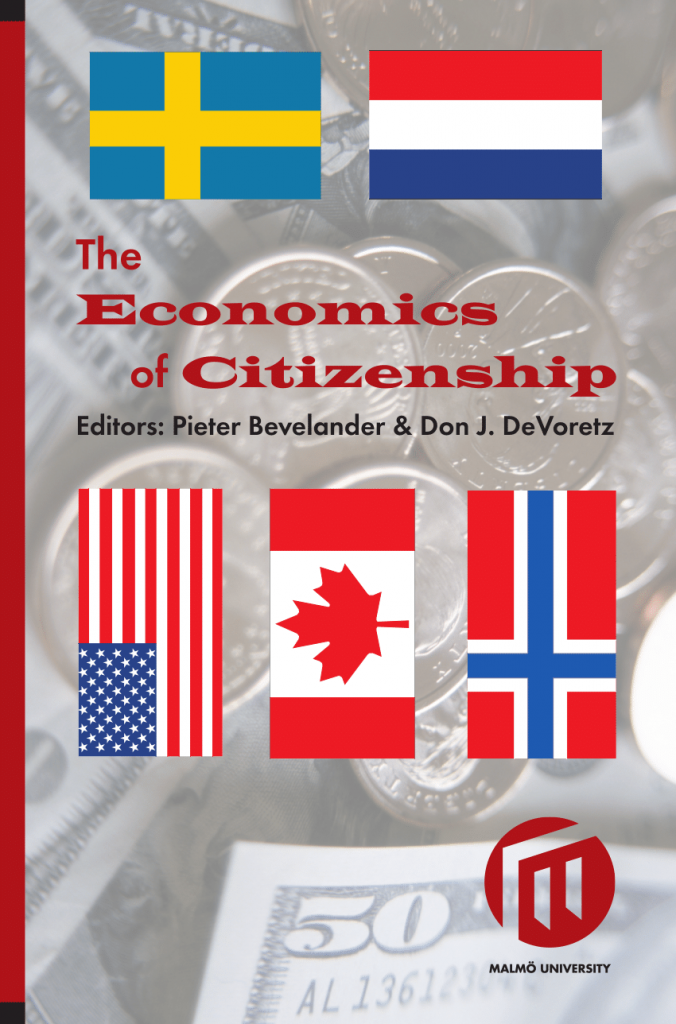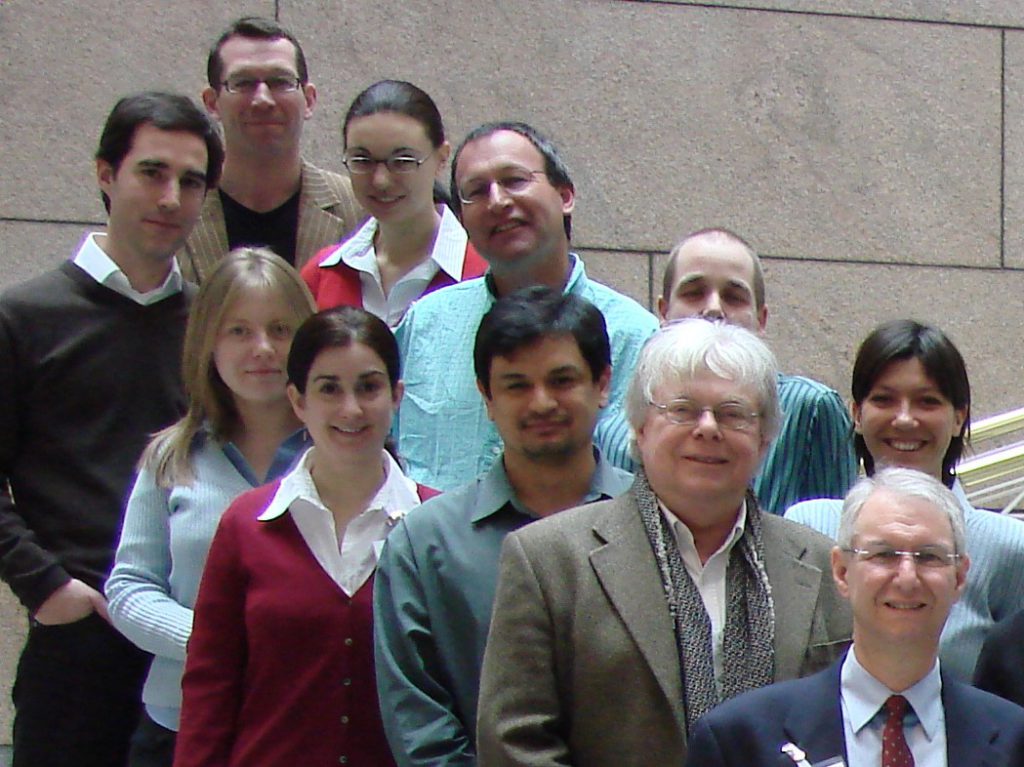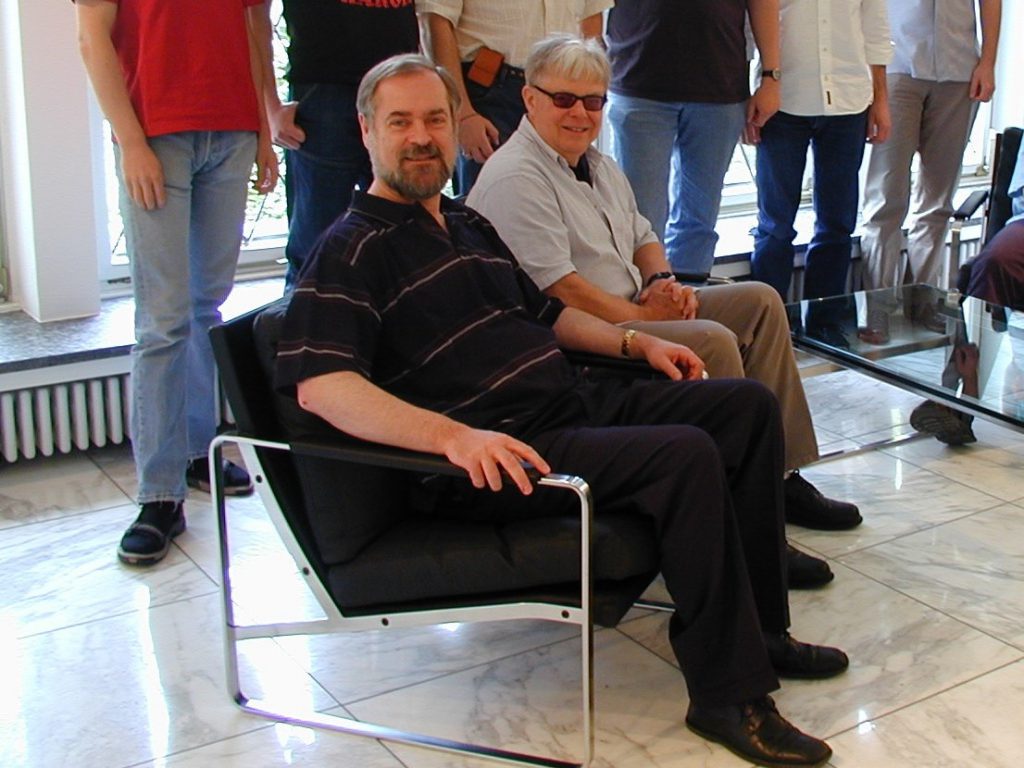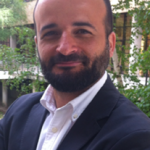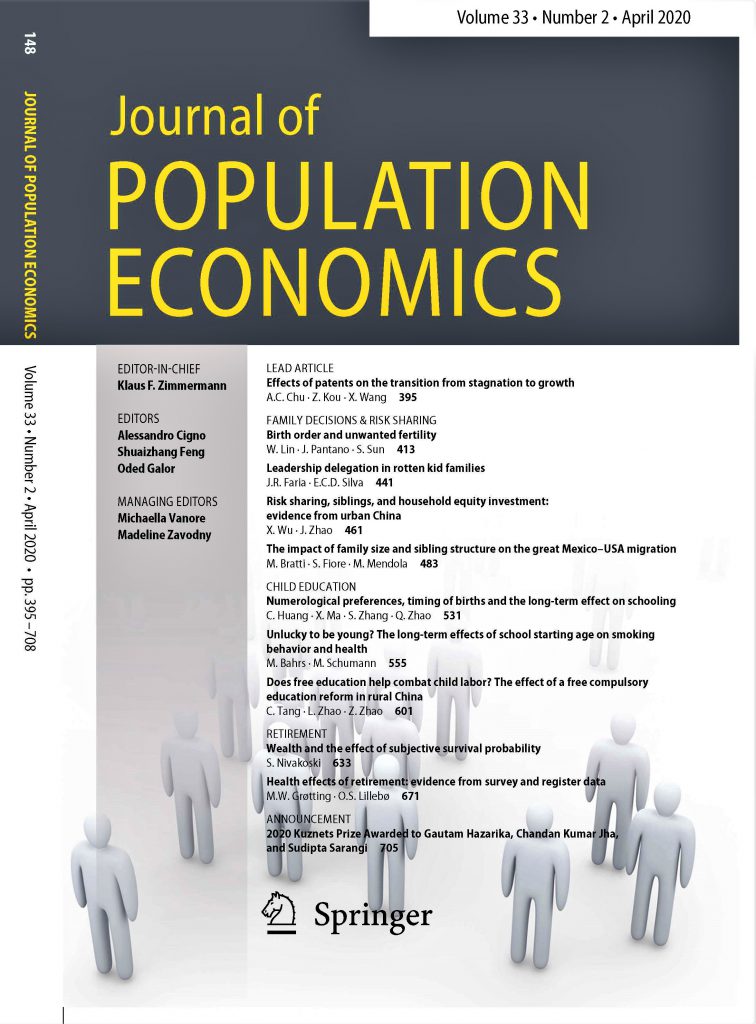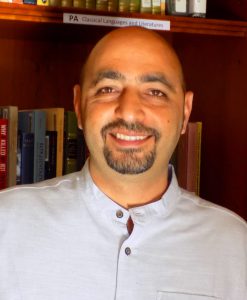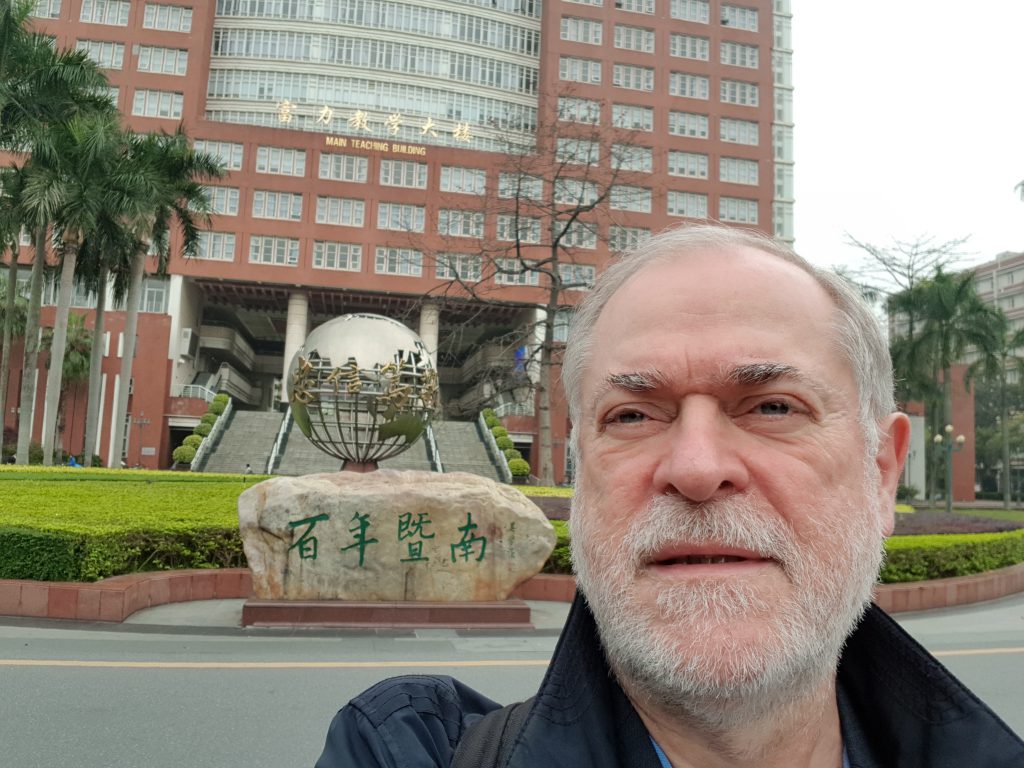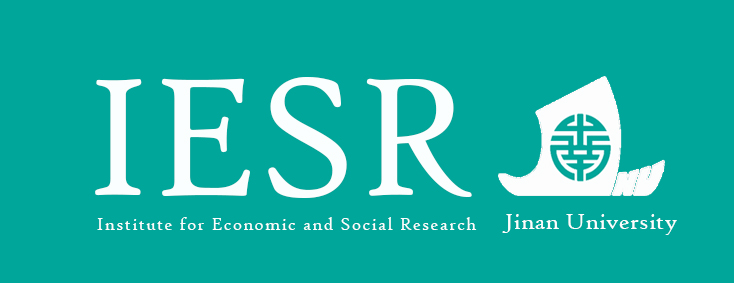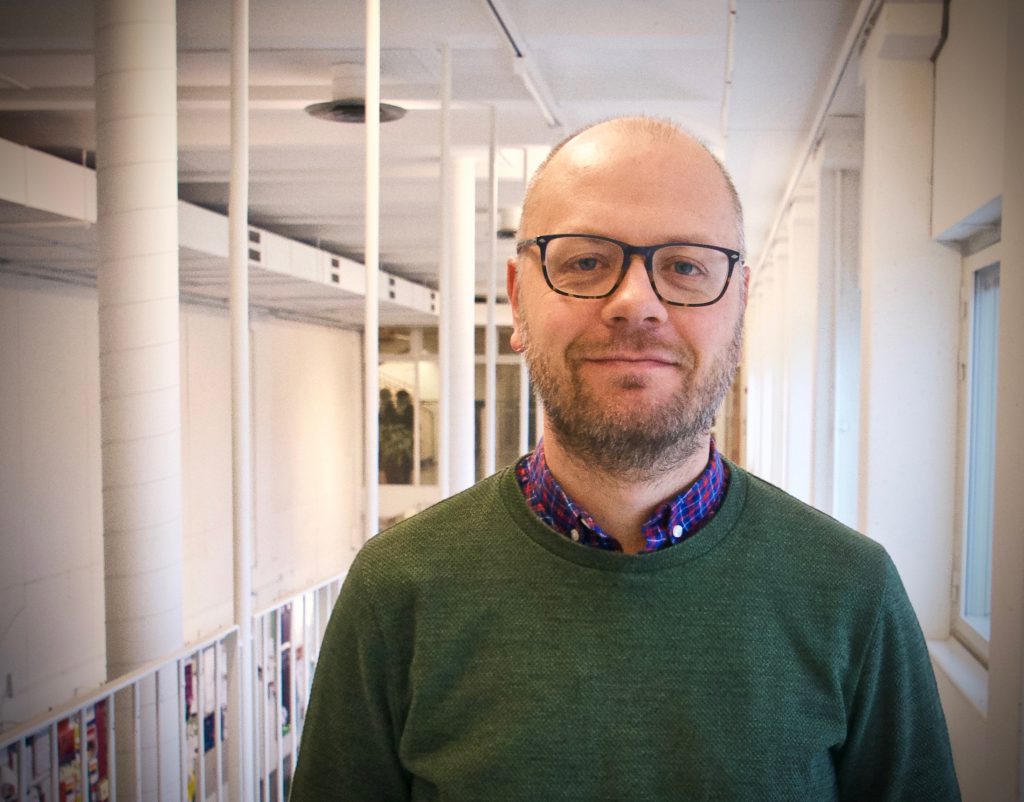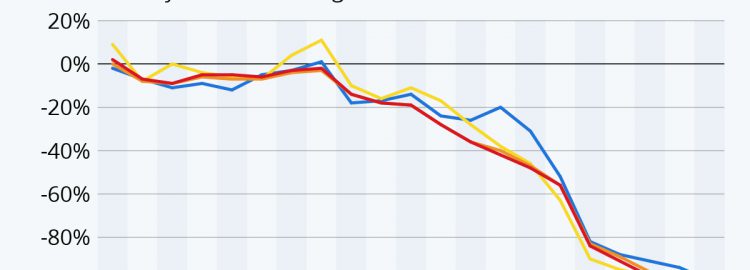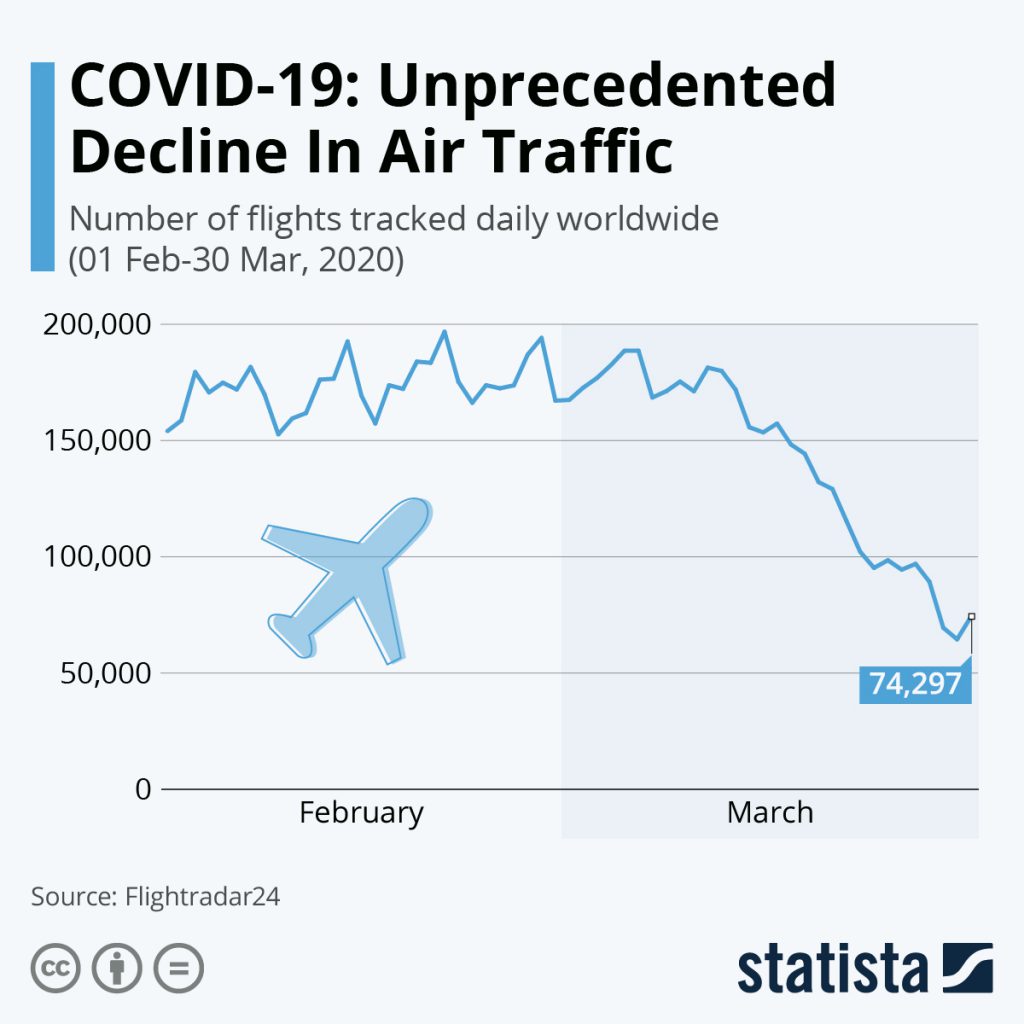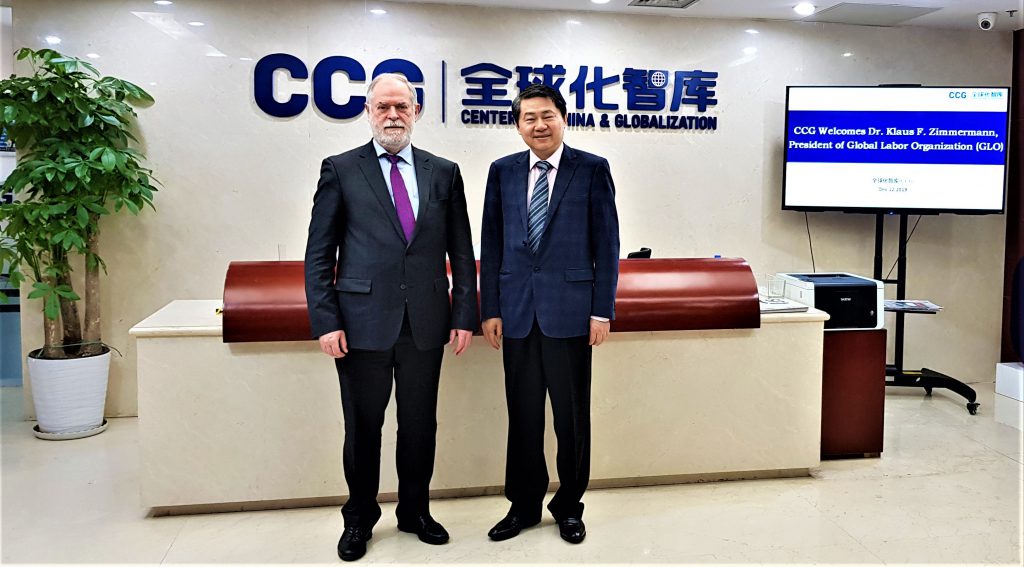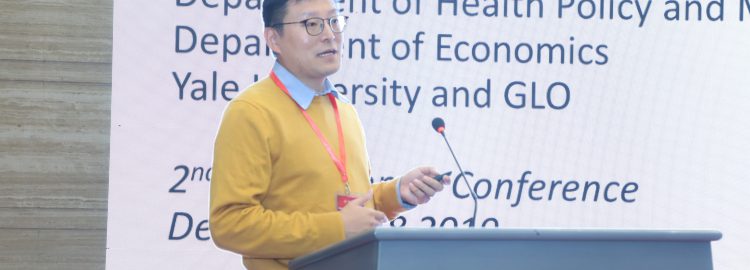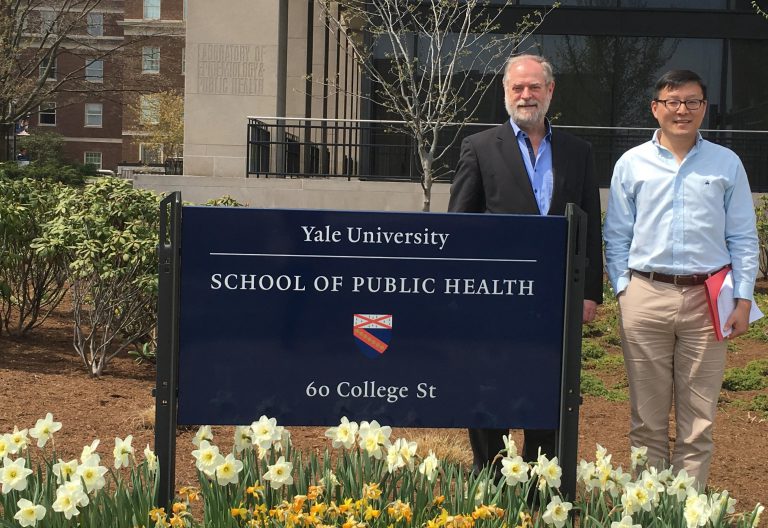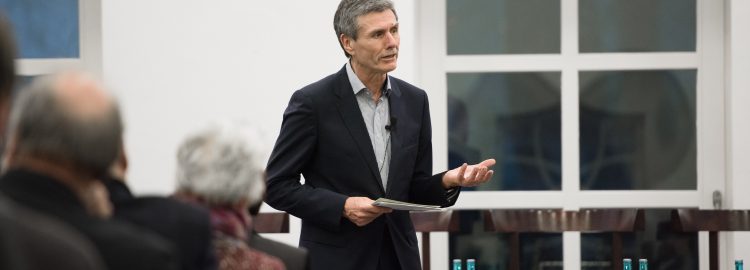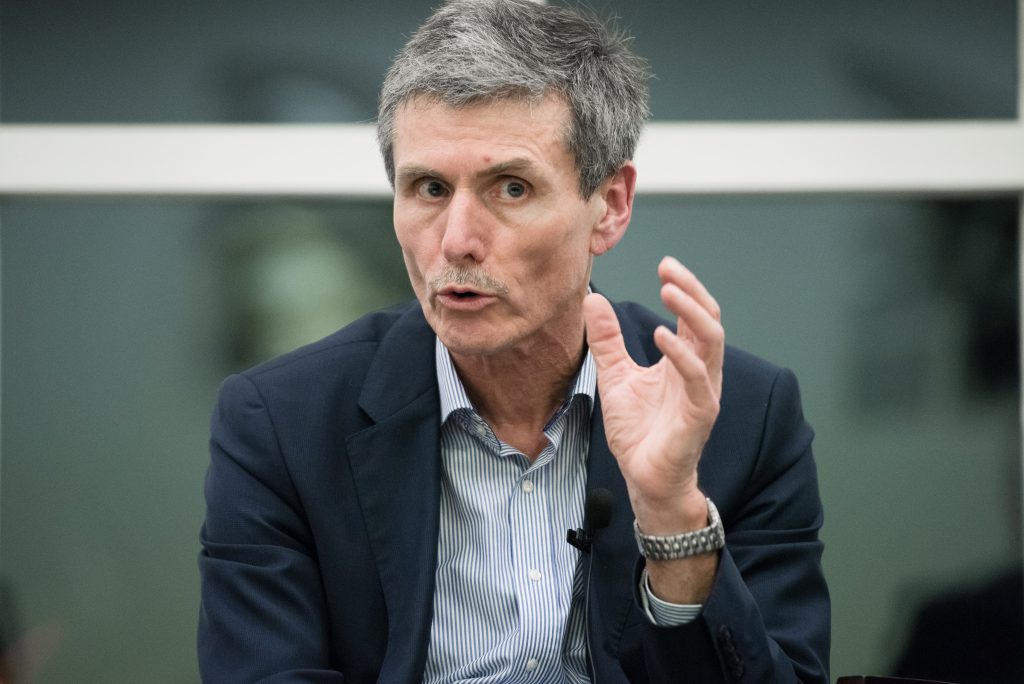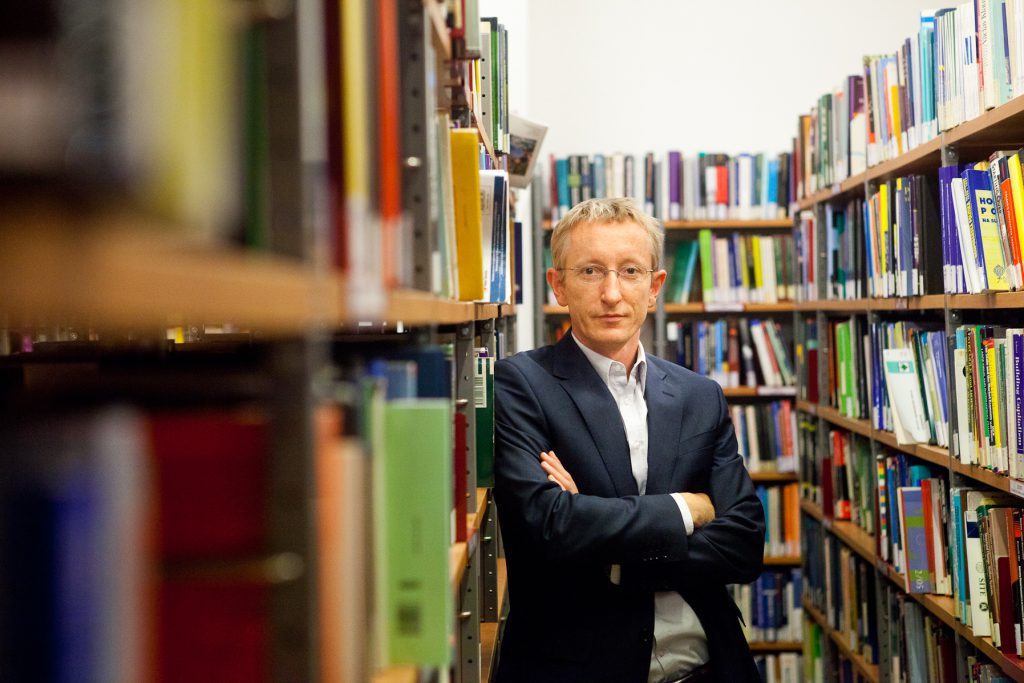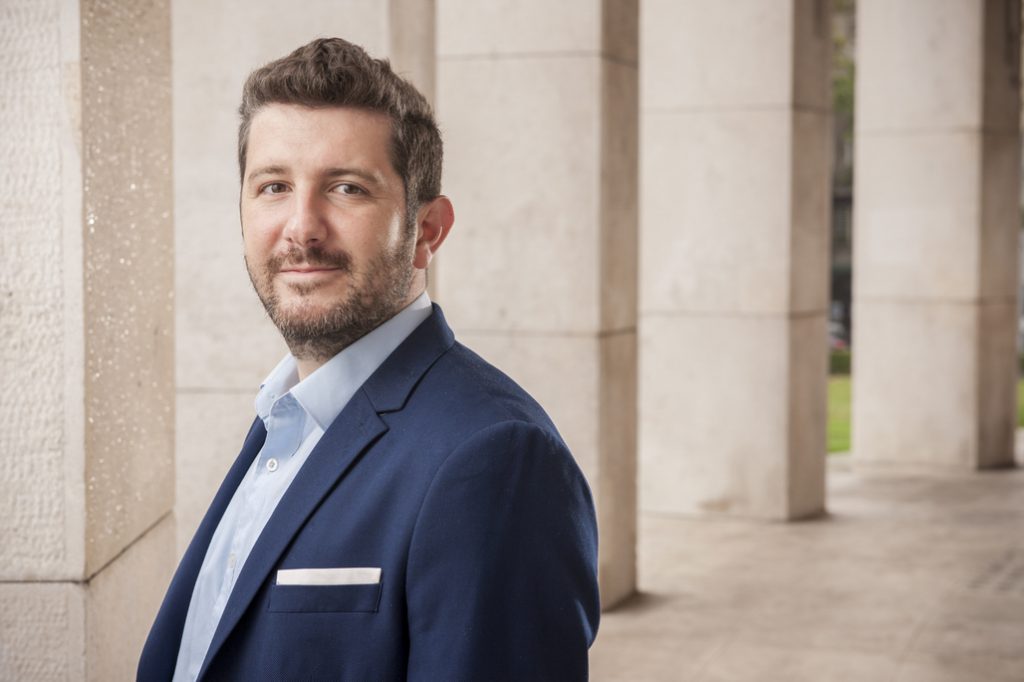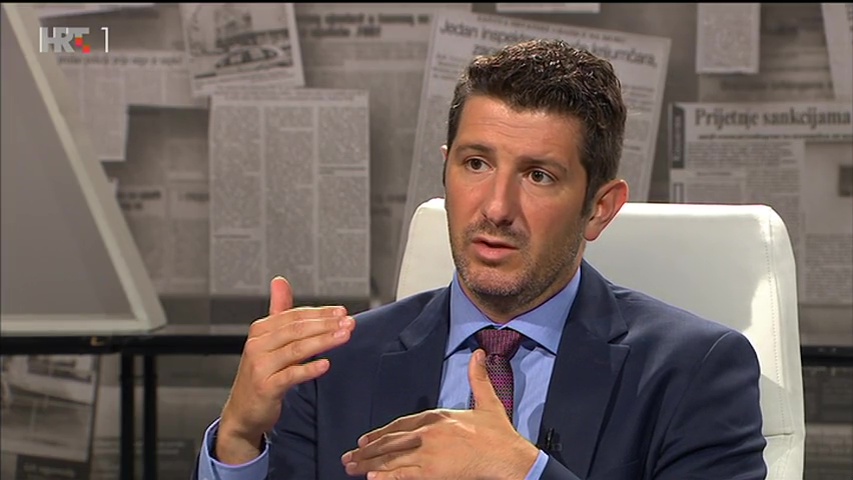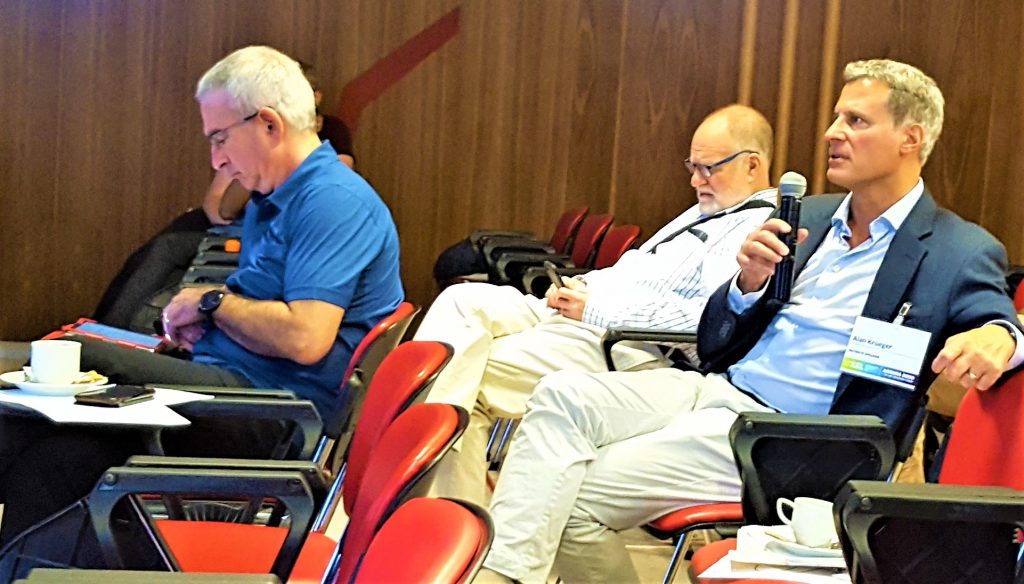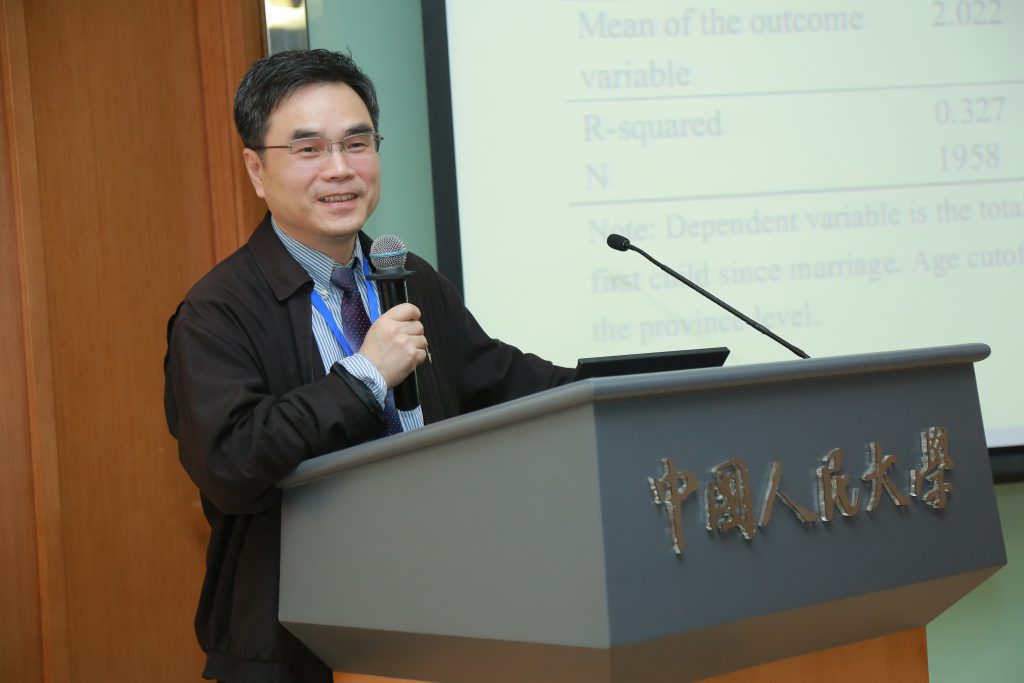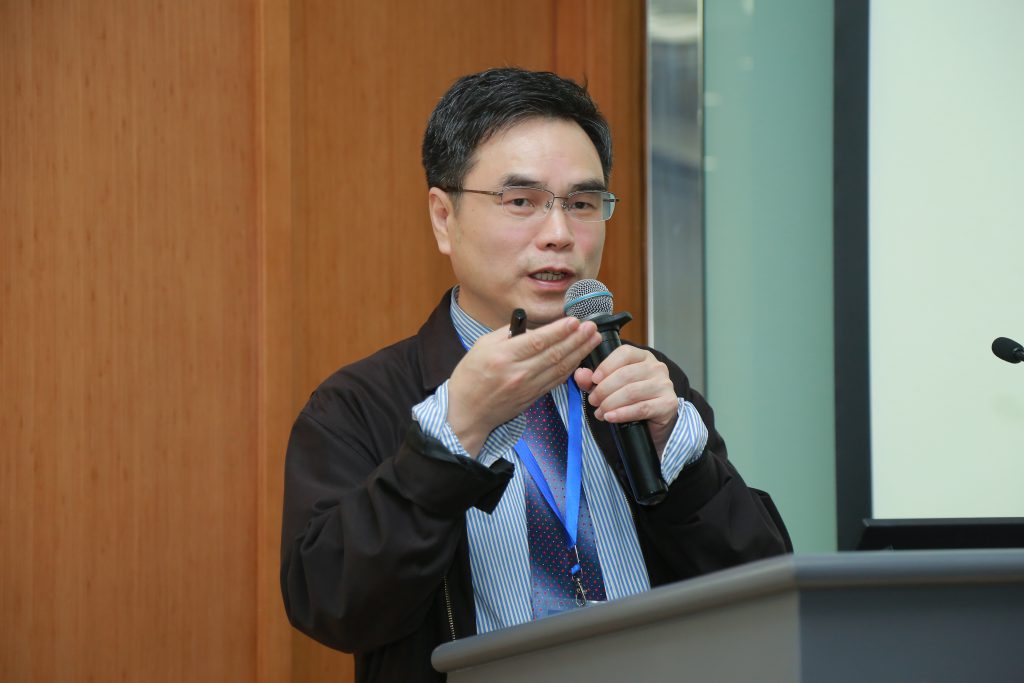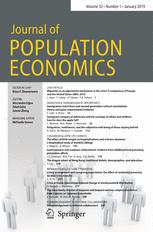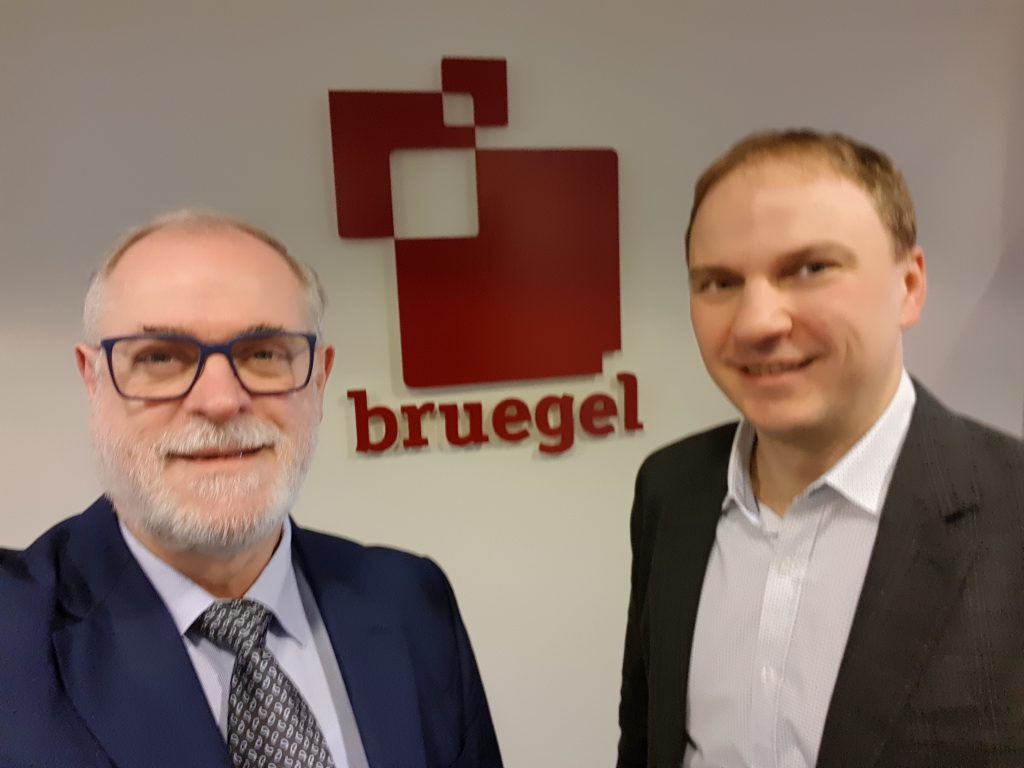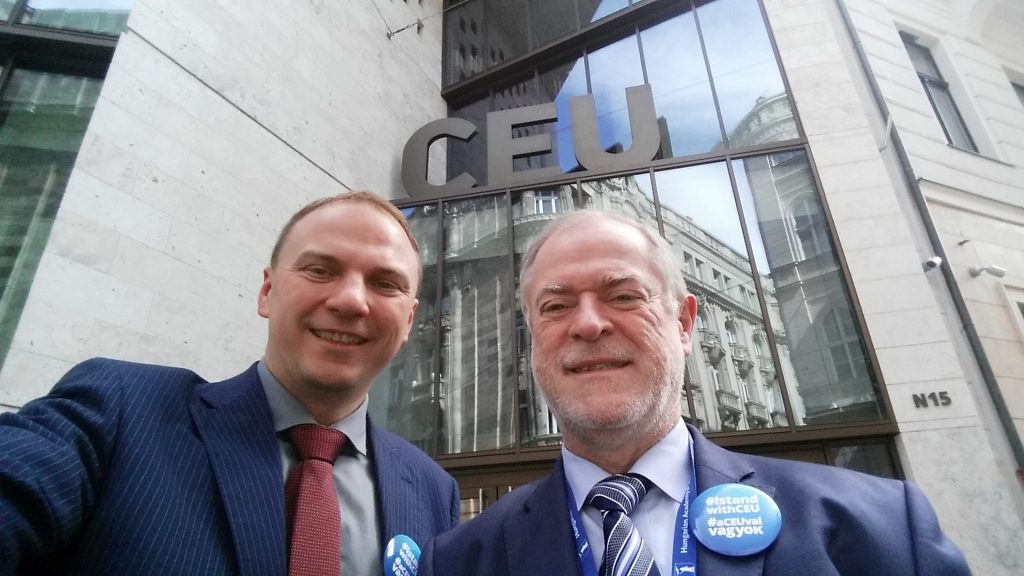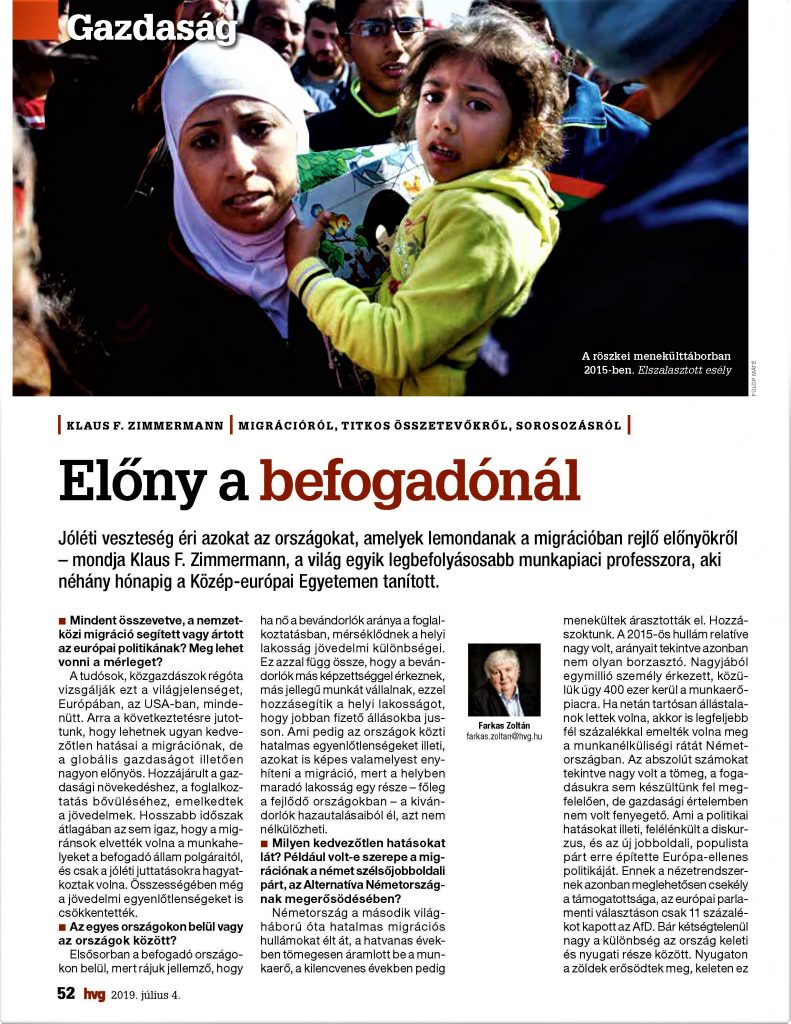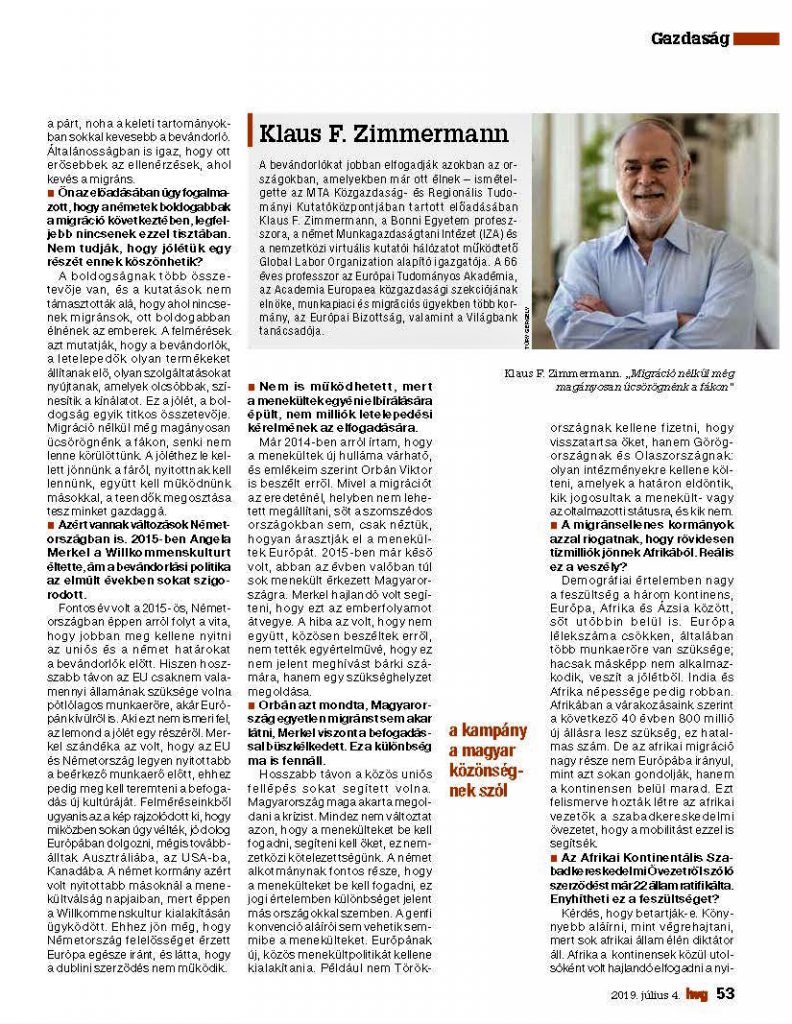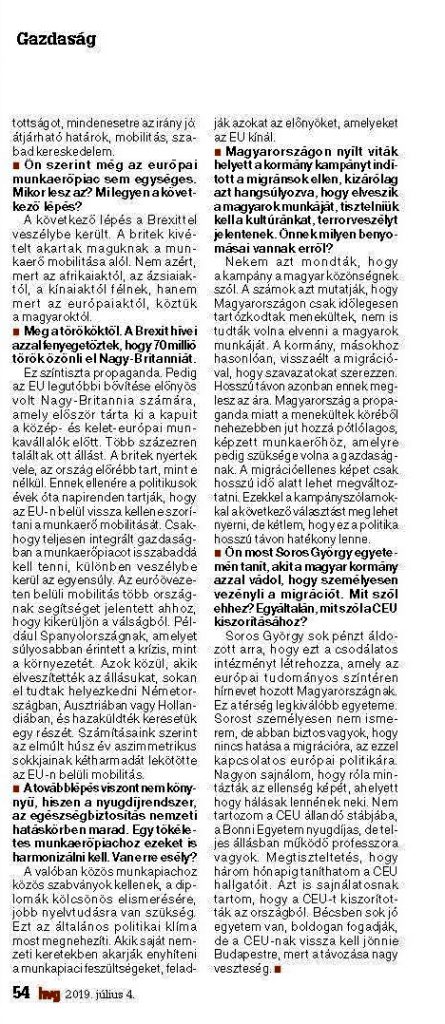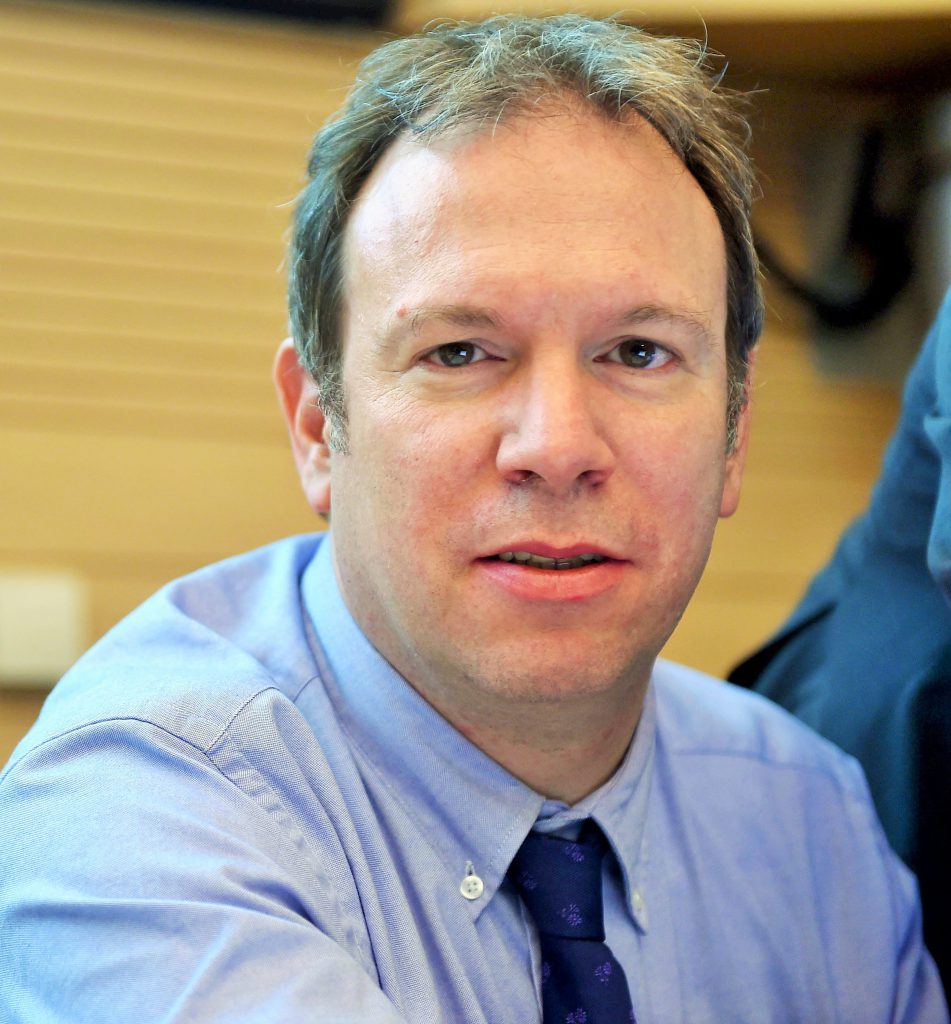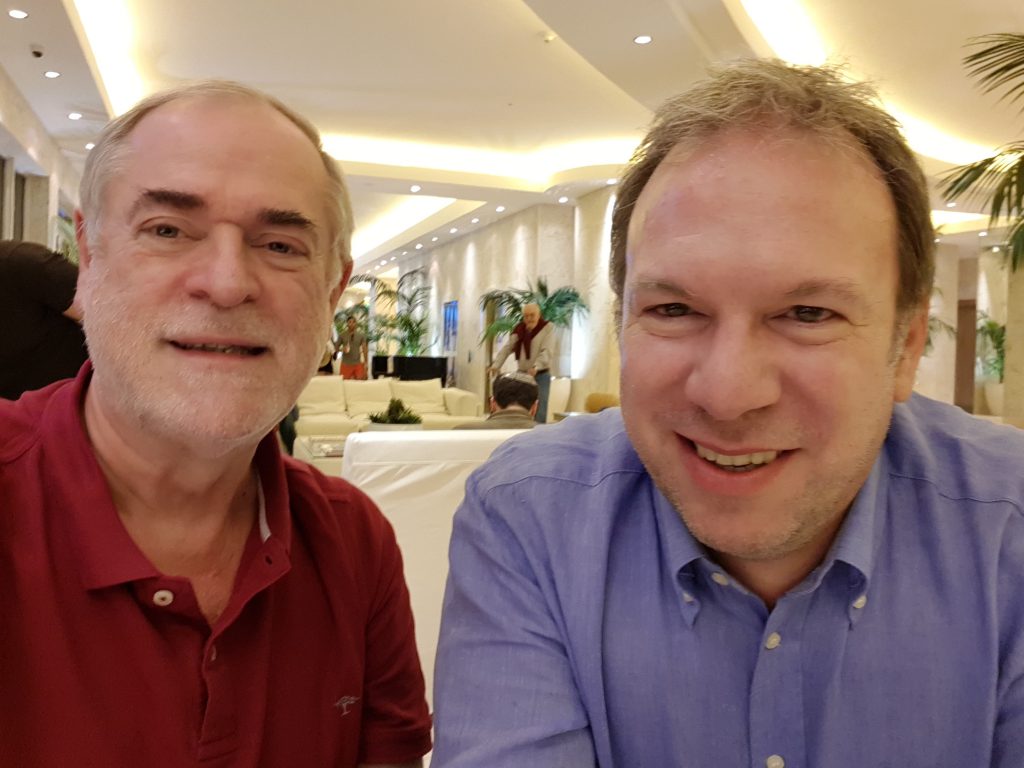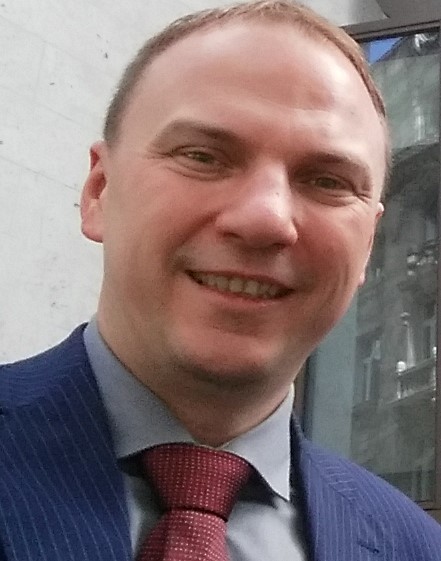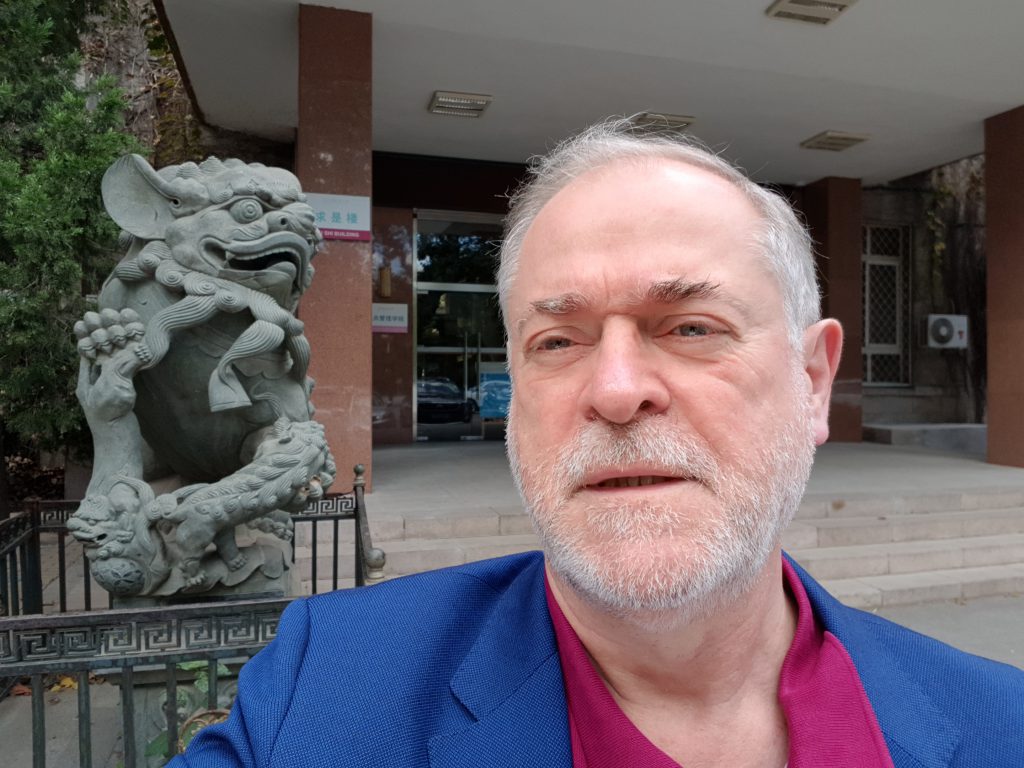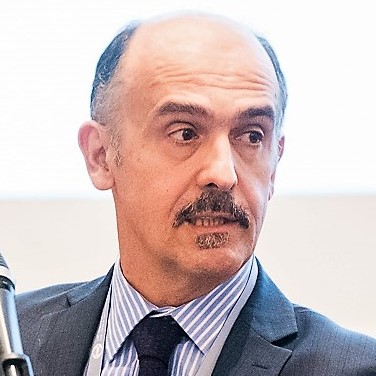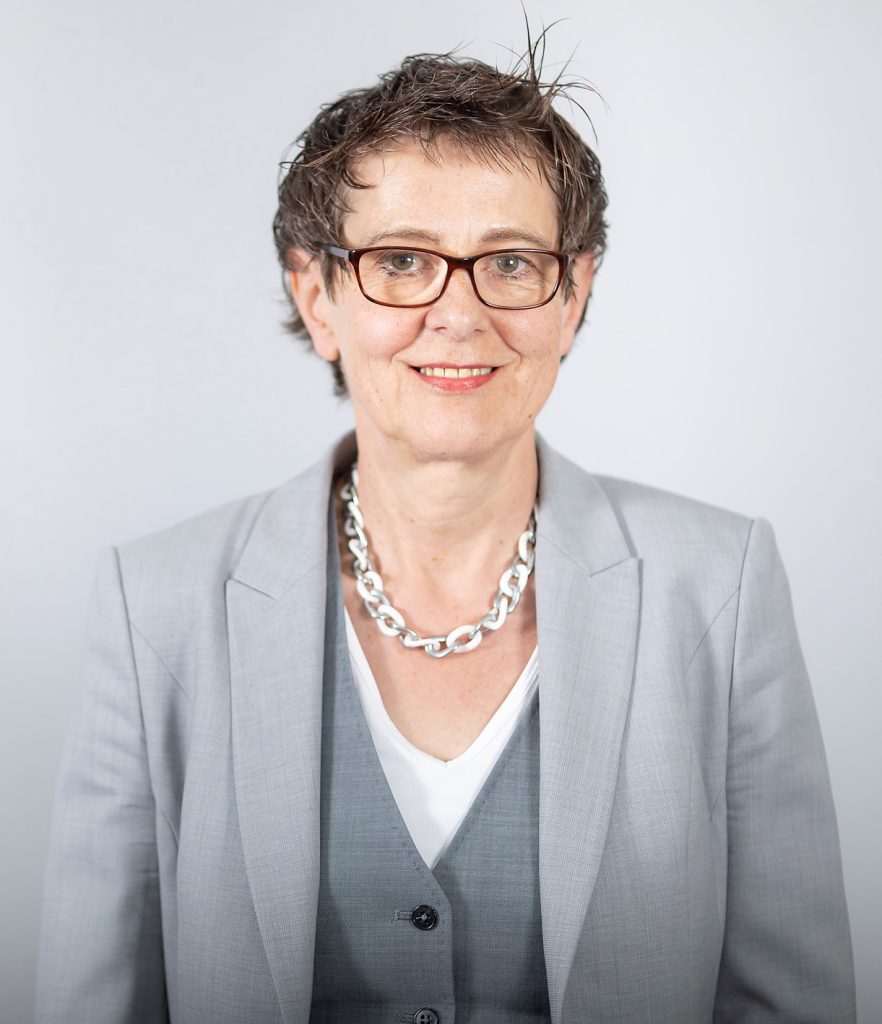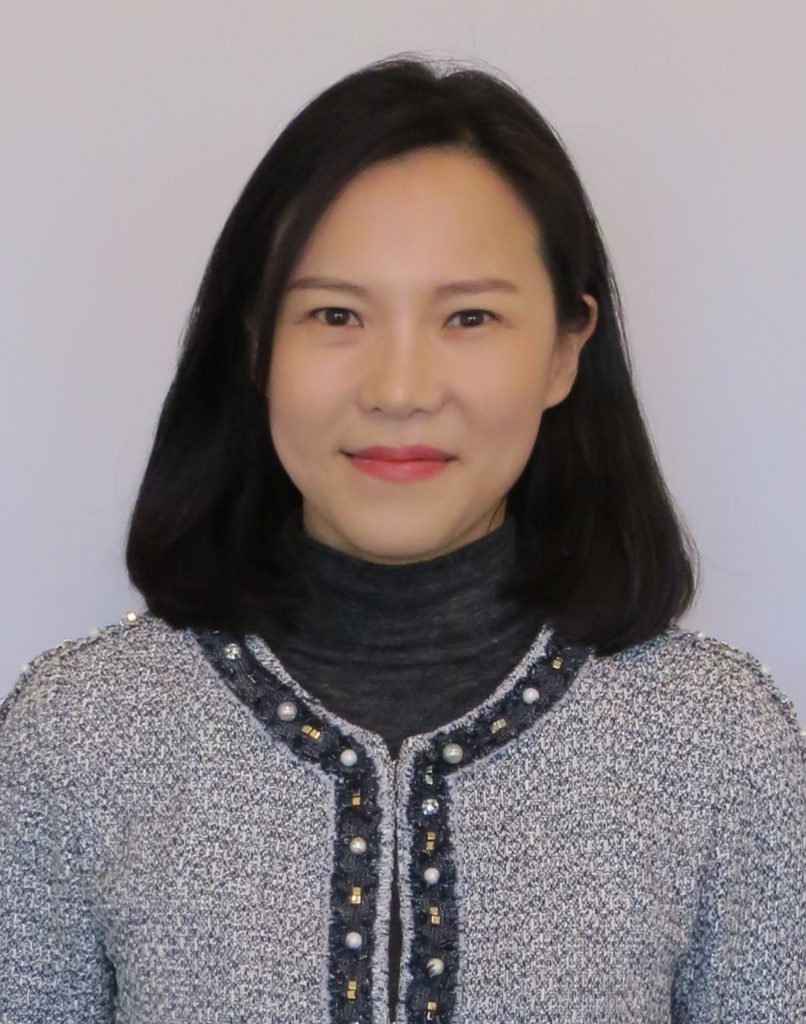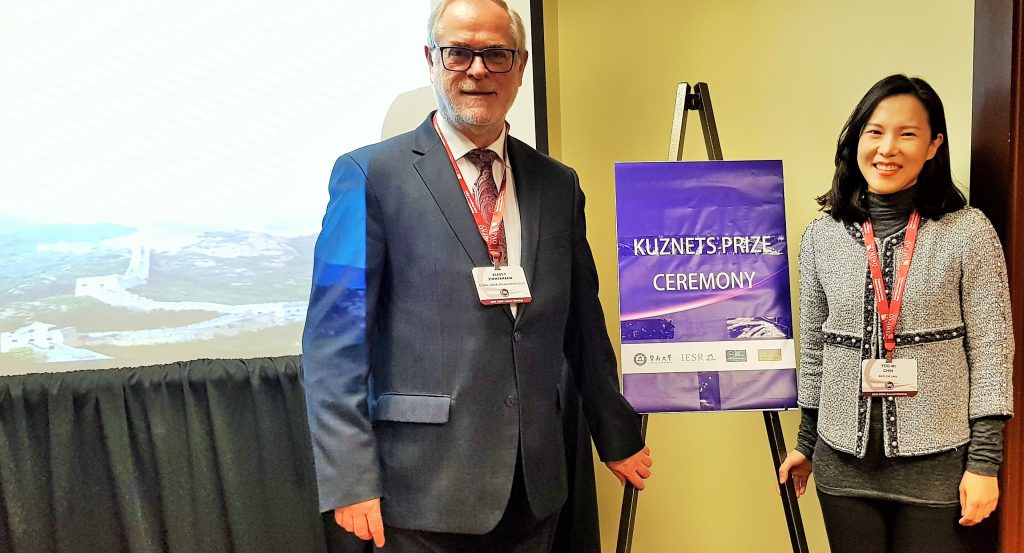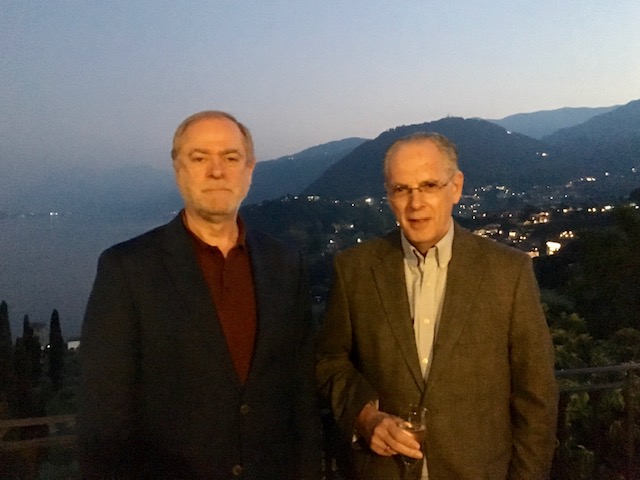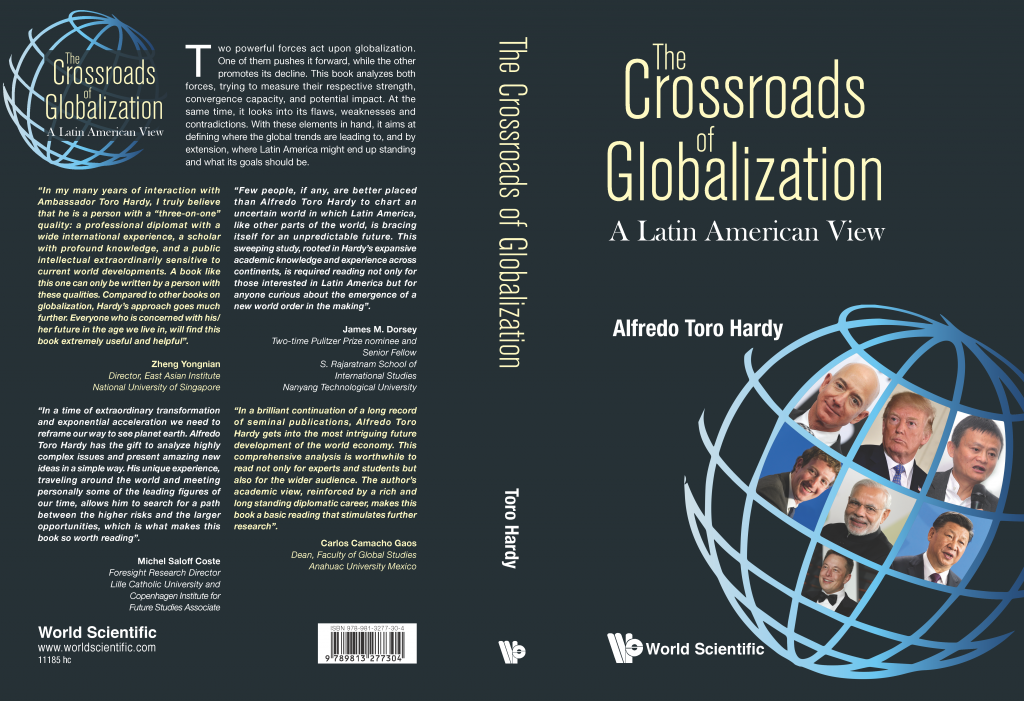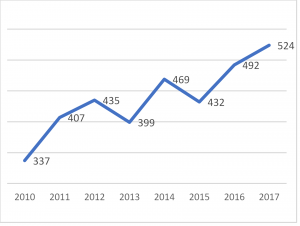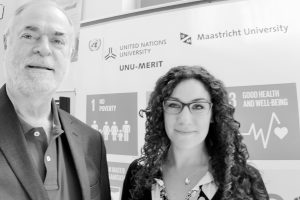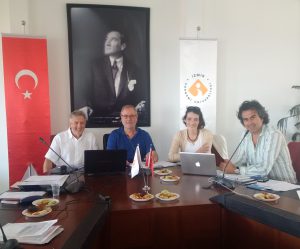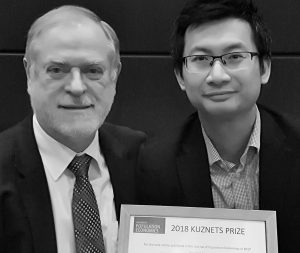New book just published analyzing the historical roots and long-term future implications of the tremendous demographical changes Europe, Asia and Africa will go through. The story uses China as the ideal case study to illustrate the major developments and implications, not only because of its history, institutional setting, and international relationships but because in the next decades it will be the country most affected by the largest shortage of labor. We discuss major points with the author in an interview (see below).
- NOTE – Talk to the author. Michele Bruni will present highlights of his book during a public online panel (free Zoom access) on December 3, 2022, 13.30 – 15.30 CET (Berlin time) on “China in the World Economy” during the GLO Global Conference 2022. The free access online link will be provided at the GLO website and here in time.
Michele Bruni is a member of the Center for the Analysis of Public Policies (CAPP) of the University of Modena and Reggio and a Fellow of the Global Labor Organization (GLO).
- For more than thirty years, he has participated in and led numerous EU, ILO, IOM, and ADB development and labor market analysis projects in China, Africa, Southeast Asia, and Eastern Europe.
- His research focuses on the development of stock-flow models and their application to the analysis of labor markets, education, and migration.
- Michele holds a PhD in Economics from the University of California, Berkeley and a Laurea in Political Science from the University of Florence.
- He has taught at the universities of Calabria, Bologna, and Modena and was a visiting professor at the universities Jyväskylä, Le Salle, and Shanghai.
- He is the author of “China, The Belt and Road Initiative, and the Century of Great Migration.”
INTERVIEW
Michele, this is a remarkable book with a secular perspective; very relevant, with many important and fascinating insights. I have learned a lot. Let us elaborate on some of your findings and conclusions:
GLO: What brought you to population research and the economics of China?
Michele Bruni: It is a long story. Despite demography being central to my research, I did not formally study it at the university, but I instead accidentally encountered it later in life.
During the early 1970s, one of the most influential explanations for Italy’s youth unemployment was De Cecco’s Ricardian thesis according to which the industrial sector prefers hiring prime age males as they were the most productive due to production demanding punctuality, accuracy, stamina, and reliability. However, my friend Franco Franciosi and I discovered that construction rather than manufacturing was responsible for the increase in prime-age male employment. Subsequently, we thought that the right way to identify the cause of youth unemployment was to estimate first time (generational) entries into employment and analyze the structure of these entries by sector, sex, age group, and educational level. This led us to develop a generational stock-flow model of the labor market based on the analysis of the demographic processes taking place inside the labor market (you can find this model in the book as the “China’s theater” apologue).
The empirical results of our model were at the same time surprising and obvious. We discovered that people enter into the labor force when they are young (normally immediately after the education and training phase), generally age inside the labor market, and then exit when they are old. Moreover, the average age of entry depends on the educational level requested by each sector and therefore is the lowest in construction, the highest in services, and intermediate in manufacturing; and, at that time, the average age structure of generational entries and exits of men and women were notably different. Finally, in a country whose social values and institutional setting aim to ensure the full employment of the main breadwinners, the high rate of youth unemployment is due to the labor demand in terms of flow not being sufficient to accommodate the young people entering the labor force for the first time: this is the result of the interaction between the demographic sphere that determines the generational entries into the labor market and exits from employment, and the economic sphere that determines the number of additional jobs.
In the mid-1980s, when the presence of migrants in Italy was still marginal, the stock-flow model allowed me to produce demographic and labor market scenarios that demonstrated that Italy’s supply of labor was shortly going to become largely insufficient. I also realized that the restrictive migration policies enacted by Western countries were totally unjustified as they prevented the arrival of people badly needed by the production system. My academic interest then became more and more political and humanitarian since I realized and hoped that a correct demo-economic analysis of migration flows could not only explain and forecast migrations, but also prevent the thousands of deaths caused by prejudices and wrong theoretical analyses of migration flows.
My conclusions were reinforced by UNDESA’s 2000 report Replacement migration: is it a solution to a declining and aging population. It broke an almost fifty-year-long dogma by courageously and bluntly stating that mass migration is unavoidable, something of which I am also convinced. I felt that the enormous amount of criticism levied at the report and its author, prof. Joseph Chamie, was completely undeserved and spoke volumes on academia’s inertia as well as the politically sensitive nature of migration.
Finally, in 2006, I moved to China where I began to study its labor market, demographic trends, and their connection to the country’s economic performance.
In conclusion, my book is not only a summary of my ideas on demography, labor market, and migration flows, but also the result of a lifelong academic and personal journey.
GLO: You have written a history of population from a Chinese perspective. What are the largest demographic challenges for the world today and what is specific to the Chinese case?
Michele Bruni: This century, our planet will witness a historical event, the end of a more than 250-year-long phase of explosive demographic growth. According to the 2022 World Population Prospects the planet’s total population is projected to peak at 10.4 billion by around 2085 and then decline; and even more importantly, the planet’s working age population is expected to increase by an additional 1.2 billion in the next 50 years before decreasing in the following decades.
Several positive considerations can be drawn. Firstly, a negative trend of the total population will reduce the GDP growth required to maintain GDP per capita constant, and therefore decrease the amount of natural resources used and our impact on the environment. It will also reduce the number of jobs required to keep the employment rate constant and provide the opportunity to confront the poverty, desperation, and moral debasement that derive from the lack of job opportunities.
Unfortunately, the situation is far more complex since over the past 200 years, the demographic transition (DT) has impacted countries around the world at different times resulting in them being at different stages of the DT. The richest and more developed states have already entered the “last” phase characterized by the decline of the working age population; many developing states will soon join them. Simultaneously, the poorest countries are experiencing and will continue to experience an explosive growth of their working age population. As a consequence, there will be an unprecedented demographic polarization between an increasing number of countries affected by a structural shortage of labor and a progressively aging population, and the poorest countries instead affected by a structural excess of labor.
Therefore, the DT is generating two opposite demographic challenges. Rich countries, to continue on a path of economic growth, will have to deal with both a decreasing labor force and an increasing number of elderly people. On the other hand, poor countries will have to manage a labor supply increasing at rates that cannot be realistically absorbed by economic growth. However, it is evident that these two situations are complementary and that it is possible to transform these regional problems into a global opportunity. This would require a political conversion to a rational approach to policymaking. Potential arrival countries should accept that it is in their economic and political interest to co-manage migration flows with potential departure countries in a manner quantitatively and qualitatively coherent with the needs of their labor market.
Despite not having achieved the status of developed country, China belongs to the group of potential arrival countries and is going to be affected by the largest absolute shortage of labor and an extremely fast aging process. While it is evident that Chinese society is not immune to xenophobia and racism, Beijing’s institutional setting, capacity to pragmatically pursue long-term goals, and desire to assume international leadership could lead it to adopt measures in contrast with the feelings of its citizens but beneficial to the country as a whole, such as in the case of the one-child policy.
GLO: Please elaborate a bit on the African challenge for Europe and Asia!
Michele Bruni: Is Africa the land of opportunities or the cradle of a demographic nightmare? Is it the new frontier for business, as suggested by CNN, or the place where children die since hospitals cannot afford pills that cost a few cents, as claimed by Save the Children?
What demographic data clearly shows is that, in absence of emigration, from now to the end of this century Africa’s working age population will register a fourfold increase bringing it from 15% to 43% of the world’s total working age population. Concurrently, the working age population of all the other continents will decline. Economically developed countries should therefore start to immediately ponder the economic, social, and political implications of these trends.
It should be evident that no matter how attractive Africa could be for foreign direct investment, it is unrealistic to assume that the continent will be able to create in the next 80 years the 1.3 billion jobs necessary to keep Africa’s rate of employment at an acceptable level (such a rate of job creation would imply outperforming China’s economic miracle). Thus, the only reasonable approach to avoid turning Africa into a demographic time-bomb is to absorb its structural excess of labor, especially since such a move would allow developed countries to deal with their structural shortage of labor.
Let me also add that humanitarian organizations should consider that too often saving the life of a child condemns them to live in dismal situations, to scavenge on rubbish damps to survive, to be easy prey of criminal groups or, if they are lucky, to be exploited by companies coming from the same countries to which he own his life. Saving the life of a child should also create the responsibility to make that child able to go to school, find a decent job, and face old age with dignity. This is only possible with a more rational and humane international order and approach to migration.
GLO: How do you judge China’s one-child policy today? Is it possible to further stabilize fertility decline?
Michele Bruni: Let me start placing the one-child policy in the international context in which it was conceived and adopted. The first demographic projections produced after WWII made evident that poor Asian countries, and especially India, were undergoing an unprecedented population explosion, caused not by an increase in fertility, but rather by a less pronounced decline of the crude birth rate with respect to the crude death rate. It was assumed that this situation would create poverty, poverty would beget communism, that in turn would destabilize the capitalist order. Moreover, the prevailing opinion shared by the leading demographers and economists of that era was that demographic growth could not be matched by economic growth and that the only possible solution was to reduce fertility. Therefore, in 1966, US President Lyndon B. Johnson decided to make foreign development aid dependent on the adoption of family planning programs, a decision immediately replicated by Japan, Sweden, and the UK. It should be noted that the Johnson administration’s decision preceded the publication of Paul and Anne Erlich’s Population Bomb (1968) and of Limits to Growth by the Club of Rome (1972). The result was a dramatic increase in the funding available to international organizations and private institutions in charge of implementing population policies. It also paved the way for India’s infamous campaign of compulsory sterilization headed by Sanjay Gandhi, during the state of National Emergency (1975-77) declared by his mother, Prime Minister Indira Gandhi.
In the meantime, China alternated between differing even contrary policies. On one hand, Mao and other high-ranking members of the CCP officially endorsed the pro-natalist Marxian position and in 1974 China helped lead Third World countries at the Bucharest Conference against the US position, under the slogan of “development is the best contraceptive”. On the other hand, family planning services were introduced in 1953 and, after an interruption during the Great Leap Forward, continued in earnest after 1964. Later on, Chinese families were urged to delay the birth of their first child, to lengthen the interval between children, and to reduce their number, a campaign encapsulated by the slogan “later, longer, fewer.” Data suggests that Chinese families shared this attitude as during the 1970s the total fertility rate (TFR) dropped from 6 to 3 children per woman.
It was in this context, characterized also by the new pragmatic and “scientific” atmosphere brought about by Deng Xiaoping’s leadership, that Beijing adopted the one-child policy, which was not an improvised measure imposed by a government devoid of humanity, but the expression of an ideology that put the nation’s interests above those of the individual. It was based on a substantially correct demographic projection made by one of China’s leading scientists and came after a debate that involved numerous national and provincial leaders, many of whom were openly against the measure. In the 1990s, China TFR fell below the replacement level of 2 children per woman, and it has remained below that figure since, despite the abolition of the one-child policy in 2016 and the subsequent measures aimed to foster fertility.
How to judge this measure? Firstly, I believe that the policy must be judged in its ideological context. At the same time, it is very difficult to assess the one-child policy’s impact with regard to the fall in fertility since at the moment of its implementation China’s TFR was already below three, in the 1990s it became a 1.5 child policy, and that other Asian countries experienced similar trends. Finally, there is no doubt that the law was kept long after it was not needed.
What is however undeniable is that the rapid fall of its TFR assisted China in lifting 800 million people out of poverty (and help to reduce global inequality as well), in surmounting an educational challenge concentrated in less than three decades, and then in facing the employment challenge with an educated labor force.
GLO: Fertility declines with development, this is the historical experience on a global level. Will fertility ever rise again with development?
Michele Bruni: In physics, an equivalent question would be asking whether gravity will one day start repelling apples from the Earth’s surface. However, while it is normally assumed that the laws of physics do not change because of the immutable nature of the universe, the laws “discovered” by social scientists do not have this universal and atemporal validity. Even assuming that human nature does not change, what is changing all the time is the demographic, socioeconomic, political, ideological, and technological context in which mankind lives and operates. Therefore, we cannot totally discard the hypothesis of a future characterized by a positive correlation between economic growth and fertility.
Before the end of this century, the Earth will enter a new demographic phase characterized by a declining population as a result not only of economic development but also of numerous other concomitant factors, including the recently acquired capacity to control the reproductive process. I suspect that this new phase will differ from our present one in numerous aspects.
The first interesting novelty is that it will be possible to improve the wellbeing of mankind while decreasing production, a feat that will however require us to drive the economic system “downhill” challenging the inbuilt inertia of the capitalist order that sees economic growth as a “natural goal.” The second is that this future society will be characterized by small families that could have fully interiorized the idea that small is beautiful. Moreover, while I doubt that the weight of reason and science will play a greater role in decision-making, it is possible that in the wake of the environmental disasters that are inevitably going to affect the planet in the next decades, humanity will have a deeper awareness of the scars that our growing population and hunger for raw material have inflicted on the Earth and will allow nature to reconquer a fair share of the planet. However, we cannot discard the possibility that some tribes produce large families. There is also a third science fiction-style possibility, that technological progress alongside the acquisition of different moral norms will bring to an externalized system of reproduction based on the quantitative and qualitative needs of the labor market.
The future is not in the hands of god, but it is the outcome of our actions, the result of chosen objectives and ways to reach them in a given material and ideological context. Therefore, economists and demographers should avoid making forecasts, limiting themselves to providing realistic scenarios to help policymakers find the best policies to reach their goals.
That said, personally I am rooting for a society that will choose to continue along a path of demographic degrowth paralleled by a degrowth in production, that aims to reduce all types of inequalities as much as possible and allow our planet to heal the deep wounds we have inflicted on it during last centuries.
GLO: What does it take to “manage” migration? Will mankind ever develop a successful institutional setting?
Michele Bruni: I believe that the most difficult step to manage (im)migration is in fact a preliminary, ideological step: to accept the idea that the labor market can be affected by a structural shortage of labor, that is a shortage that cannot be dealt with by market forces or active labor policies. This possibility is obstructed by the dominant paradigm. Moreover, this position finds support in the deeply rooted irrational – and therefore immune to any scientific refutation – prejudices successfully promoted by many populist and nationalist parties. These prejudices have also played a relevant role in assisting them to reach national prominence or even, as in the case of Italy, power.
Once a potential arrival country accepts this very simple and, in my opinion, self-evident position, these following more technical steps could be in order: estimate how many migrants are needed by educational level and skill; agree with one or more countries affected by a structural excess of labor to organize and co-manage migration flows quantitatively and qualitatively coherent with their needs; organize the transfer of migrants from the country of origin to the place where they are needed; and arrange for their placement in the labor market while supporting the social integration of their families. A fundamental aspect of my proposal deriving from my demand side explanation of migration is that recipient countries should finance and give technical support to the education and training systems of departure countries. In this way they would not only recognize the economic value of human capital they would be draining from departure countries, but this would also ensure that the migrants will have the skills they need.
A shortage of labor is already affecting North America, the EU, and numerous Asian countries and will affect many countries part of the Belt and Road Initiative (BRI). In the book, I suggest that China could take advantage of its leading position in the BRI and champion the adoption of immigration policies by member countries with a structural shortage of labor in accordance with member countries with a structural excess of labor, while at the same time providing departure countries with the financial, human, and organizational resources necessary to give migrants relevant skills. Since education and training represent a key to development, this rational migration policy should assist with the socioeconomic development of departure countries and eventually help them converge with the developed world. Obviously, this suggestion is valid for other groups of countries which, as in the case of the EU, already have institutions that could coordinate the migration policy I suggest. As I have already stated, what stands in the way of a rational and humane migration policy are a misleading economic paradigm and prejudices embedded not only in right-wing parties but also across a large section of academia.
GLO: Given the global demographic challenges: How can China avoid mass immigration? In your book, you argue it cannot, why? It has already seen the greatest internal migration flows ever in mankind. Would it not be the right political strategy to avoid immigration to not face rising societal instability? And if a country can do this, then would it not be China?
Michele Bruni: Starting in 2013 China’s working age population started to decrease and from 2020 to 2050 will decline by around 174 million (-17.6%). In an intermediate labour market scenario, that assumes a constant rate of participation and a modest increase of the employment level (8% over the 30-year period), China will be affected by a shortage of more than 220 million workers (28% of initial employment), that translates to around 250 million migrants. It is evident that this would generate enormous societal problems and China should adopt all the measures that can reduce the inflow of foreign workers. The question is: will these measures be sufficient to avoid mass immigration?
A labor shortage can be confronted by increasing the labor supply and by reducing labor demand. Starting from the supply side, increasing fertility would seem the most obvious answer to a declining labor force. Nevertheless, only very few countries (France in primis) through the adoption of complex and well-organized sets of pro-natalist measures have been able to achieve significant results. Moreover, while it is evident that any country should try to reduce the gap between births and deaths to avoid the destabilizing effects of an excessive natural demographic degrowth, any positive impact on the number of births would only affect the labor market after 20 years.
I have further argued that China cannot expect relevant results from other supply measures. The participation rate assumed by the intermediate scenario is already high and a further increase looks improbable. Removing the existing obstacles to internal mobility is certainly socially and economically advisable, but it will not significantly reduce the country’s national labor shortage. The lengthening of life expectancy will soon impose raising the legal age of retirement. However, this measure (that increases the number of generations co-present in the labor market, while decreasing the numbers in retirement) will have a limited and temporary impact on the labor shortage for two main reasons. Firstly, an increasing number of people above retirement age are already voluntarily remaining in the labor force; secondly, the increase in the number of elderly workers will be neutralized by a decline in the number of young workers since technological progress will determine an increase in the duration of the education and training phase.
The demand side measures that can be adopted are mainly two: delocalization and technological progress. Delocalization has been already adopted by many countries experiencing a situation of a structural shortage of labor, Italy and Japan being relevant examples, but no country has been able to solve the problem of a labor shortage in this way. Moreover, once we consider that not everything can be produced abroad and that numerous other countries with more international experience will be adopting the same approach, it becomes evident that China cannot hope to resolve its shortage of labor through this policy.
Let us finally consider the solution favored by many Chinese economists, technological progress such as AI and automation and its resulting increase in productivity. However, I have argued that we should not expect technological innovation to be the hoped-for Deus ex machina. Empirical evidence shows that once we adopt a dynamic perspective (i.e., we take into consideration also second-order effects) new technologies do not have a negative impact on the employment level, but rather lead to the substitution of labor for routine tasks with skilled labor that can perform non-routine cognitive tasks, and therefore with a higher level of educational attainment. More generally, I would argue that all the previous waves of technological change, starting with the initial Industrial Revolution, have expanded the employment level because while new technologies do destroy many jobs, they also create new jobs due to the boundless capacity of the human mind to invent new needs and the new goods necessary to satisfy them.
I believe that China’s internal migration is in fact the proof of my thesis. The unlimited supply of labor present in the countryside and in the poor inland provinces moved (was attracted) to where the local supply of labor was not sufficient to face an expanding labor demand. It also seems to prove the capacity of China to “manage” huge migration flows (the number of China’s internal migrants exceeds threefold international economic migration flows). According to my computations, the next thirty years’ labor needs are in line with the internal migrations that have taken place in China in the last thirty years. The difference is that potential migrants will not be Han Chinese. I sincerely hope that Beijing will recall that the apex of Chinese civilization was reached during the Han dynasty, an era characterized by a multi-ethnic, industrious, and creative society.
GLO: In your book, you identify a strategic advantage of China over other Asian and over European countries with similar demographic challenges: What are your suggestions for a rational and humane Chinese migration policy?
Michele Bruni: I think it is fair to state that China, while enjoying some advantages, also shares numerous disadvantages with respect to other Asian and European countries affected by a structural shortage of labor. More specifically, a large share of Chinese citizens have the same prejudices against migrants and xenophobic feelings as their Western counterparts. Furthermore, despite the different ideological background, economic thinking in China is dominated by the neoclassical paradigm.
Regarding advantages, as I have already suggested, when confronted with ”survival issues” China has been capable of embracing a pragmatic attitude and adopting measures that, while beneficial to the country as a whole, go against the feelings of its citizens. I hope that this pragmatic approach to policymaking will remain despite the increasingly ideological turn that Xi Jinping’s leadership is taking. Finally and most importantly, Beijing’s policies are guided by a long-term vision of the goals it wishes to reach both domestically and internationally and by an institutional setting that prioritizes efficiently achieving them.
GLO: Is the Belt and Road Initiative (BRI) a threat or a boon for the world? In your book you argue that it will be more positive than negative, since it began in a non-competitive setting. But the upcoming reality may be quite different. New competition between the systems, struggles for world economic, technological, and military leadership, excessive burdens and dependencies for the countries involved.
Michele Bruni: The BRI is an instrument and like many instruments it can be used to do good deeds or bad deeds. I think that Beijing would prefer to stick to its long-term internal and international goals and as I have suggested the BRI could play a central role in helping China achieve them. However, there is no doubt that totally different outcomes are possible since the future depends on the complex and interwoven relationships between actors with conflicting goals. Therefore, also in this case, I prefer to be coherent with my ideas on what role an economist should play. I will therefore avoid making forecasts and continue building alternative scenarios that could eventually help make rational and humane choices.
GLO: The human factor looks rather marginal in the Belt and Road Initiative (BRI) so far: Will this change and how?
Michele Bruni: For the moment the human factor has certainly played a marginal role in the BRI. My analysis suggests that the demographic trends that will affect BRI countries in the following decades could dramatically change this situation.
The total population of the estimated 65 original members of the BRI amounts to 4.8 billion people, 62% of the world population. In absence of migration, it is projected to reach a maximum of 5.6 billion in 2060 (when its share of world population will be down to 55.5%) to then decline progressively. The working age population will start to decrease 15 years earlier (in 2045) after reaching a maximum of 3.6 billion. However, as in the case of the planet, in the next 25 years the growth of the working age population of BRI countries will be the sum of the negative contributions of 24 countries including China, Thailand, Poland, Russia, and Ukraine, and the positive contributions of other countries, in particular Asian states, like India, Pakistan, Indonesia, Philippines, Afghanistan, but also African ones like Egypt.
I have argued that this situation will inevitably determine huge migration flows of up to 250 million people in the next 25 years and that it would be in the economic and political interest of China to champion organizing migration flows between BRI countries in a rational way. This would imply estimating the number of workers needed by the countries affected by a structural shortage of labor by educational level and skill typology. I have further argued that to maximize the positive impact of migration flows for both arrival and departure countries, the former and especially China should finance the education and training system of the latter and provide, when necessary, technical support. Departure and arrival countries should then organize the transfer of migrants, something which is currently very often in the hands of criminal organizations, while the latter should be in charge of their placement and the social integration of their families.
GLO: Why will China dominate the global order in this century? Has the Russian war against Ukraine not changed this perspective?
Michele Bruni: The scenario of China dominating the world depicted by Martin Jacques in 2010 is becoming more and more probable. In 2017, China became the world’s largest economy measured at PPP and has since then progressively distanced itself from its main competitors, the US and the EU whose GDP (measured at PPP constant 2017 international dollars) in 2021 was equal respectively to 84% and 79% that of China, despite the economic effects of China’s zero-COVID strategy. A further indication comes from China’s extremely fast technological progress promoted and supported by a growing number of highly educated and competent young people formed by universities whose international rankings are also steadily improving. However, what in my opinion makes this perspective very probable is the comparison between a country that has the capacity to establish long-term plans and an institutional setting that prioritizes efficiently pursuing them, and a Western world constantly engrossed in short-term issues and whose goals and the policies to achieve them are constantly being reshuffled.
In this perspective, the Russia-Ukraine war seems to me a short-term, albeit very dramatic, event that, as has been the case for the Iraq, Afghanistan and Yemen wars and the never-ending conflict in Syria, will not have a significant impact on China-US competition. It could even be argued that the war in Ukraine, while having a negative impact on Western economies where growth is slowing down due to the energy crisis and anti-inflation measures, could benefit China’s economy and global position.
Regarding Russia and Ukraine, let me recall that before the pandemic and the war, their total population and, more importantly, their working age population were in decline. The war is having an extremely heavy impact on fertility and on the working age population in both countries and will therefore modify both their short-term demographic situation and long-term demographic evolution. This will have serious implications that have not yet been considered. The first is that most probably when the war will be over, both countries will not be able to return to pre-war levels of production including of goods essentials for other countries, especially African ones. Let me also note that while Western countries are already promising a “Marshall Plan” of around 400 billion dollars to rebuild the country, nobody is asking whether Ukraine will have the labor force necessary to do so.
GLO: Given the current struggle for a new world order: Will globalization end? China does not want it, but can it be avoided? Or will it be just different?
Michele Bruni: I believe there is no going back from the international interconnection that currently characterizes the world. In many cases, such with natural resources, cutting ties would be impossible, in others it would have extremely negative economic impacts on economic growth and consumers. However, the decreasing economic weight of Western economies and the parallel increase in economic weight of developing countries opens the way to a multipolar globalized planet in which the role of Western countries and therefore the impact of their decisions will become less and less relevant. It is to be hoped that the new international order will try to reduce the negative aspects of today’s globalization, and that globalization will also include labor since it is the only way for the poorest countries to escape the poverty trap born from demographic trends and the “wall” policies dominating the planet.
******
Michele Bruni was interviewed by Klaus F. Zimmermann, GLO President.
Ends;

